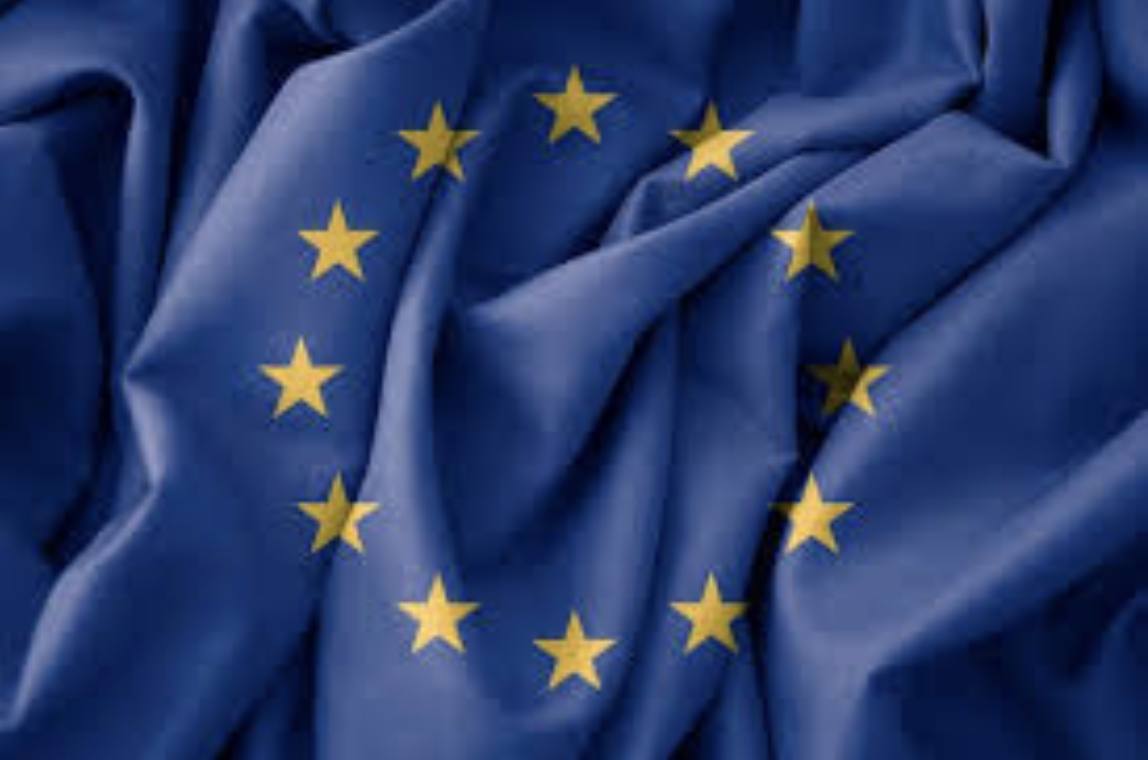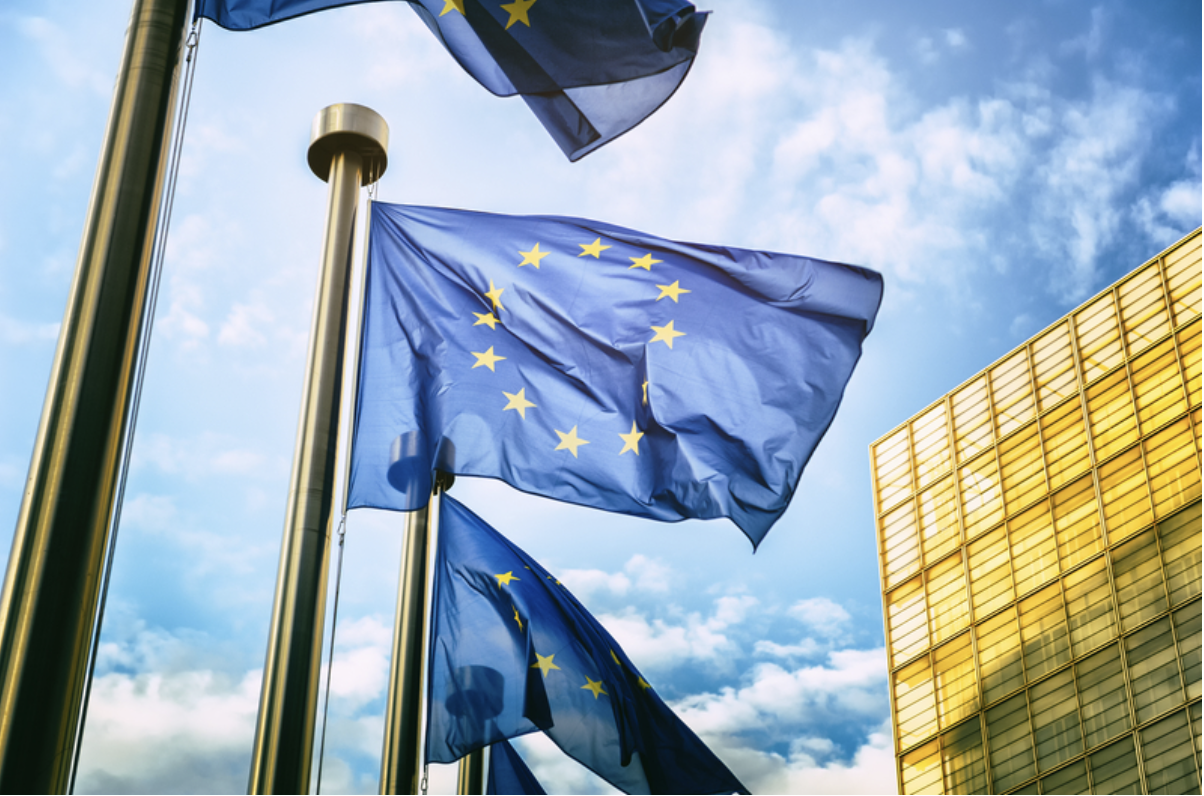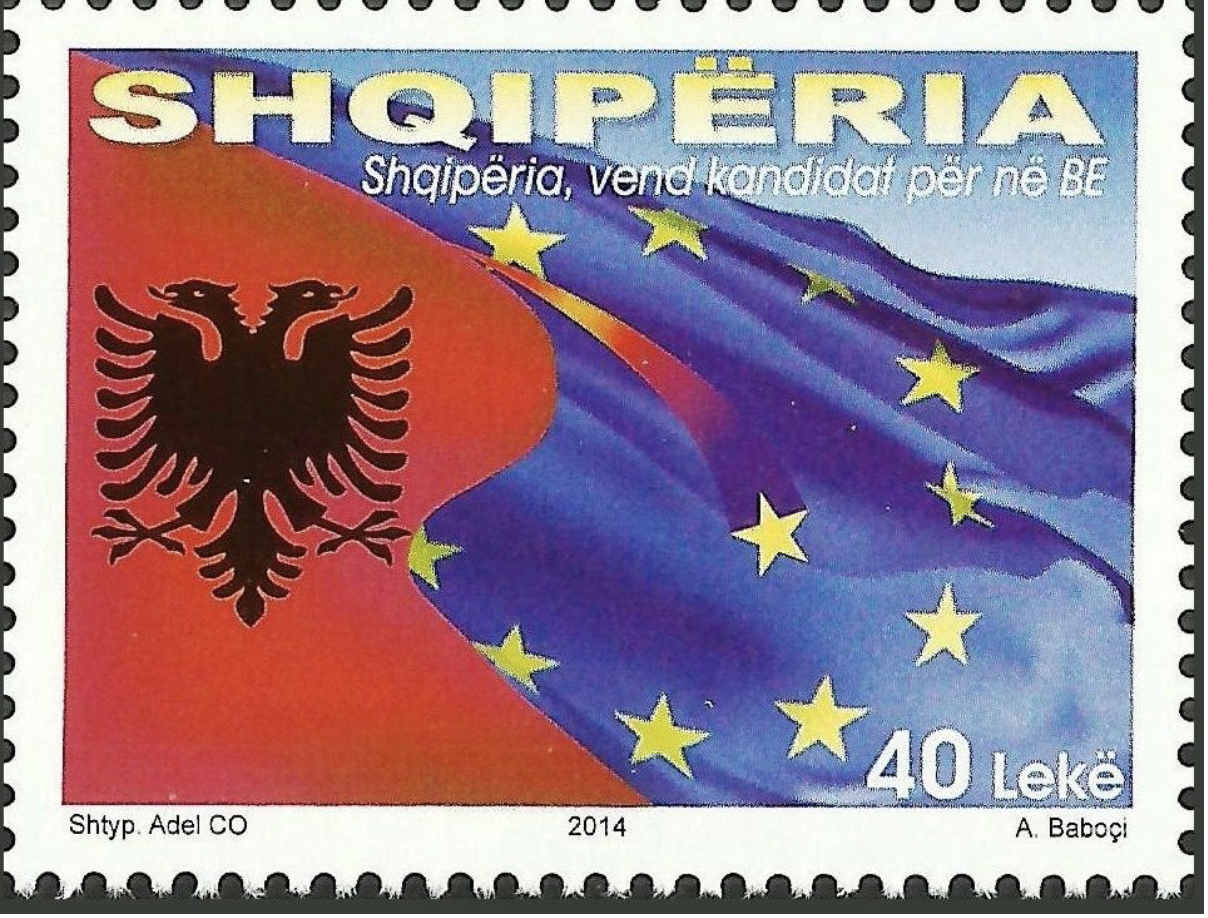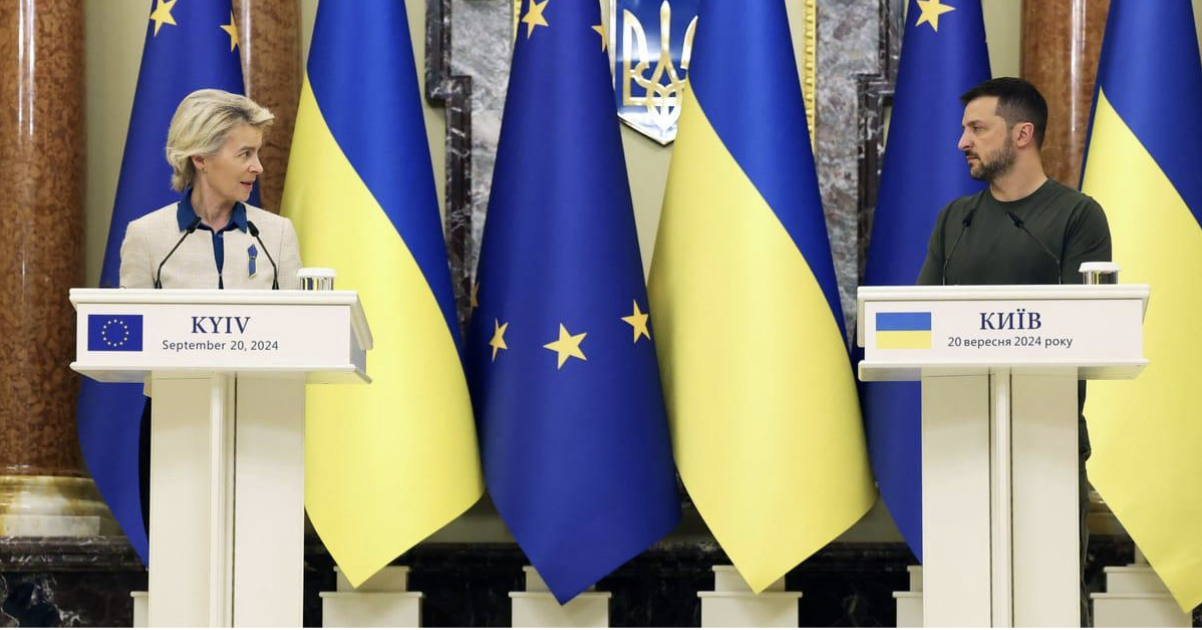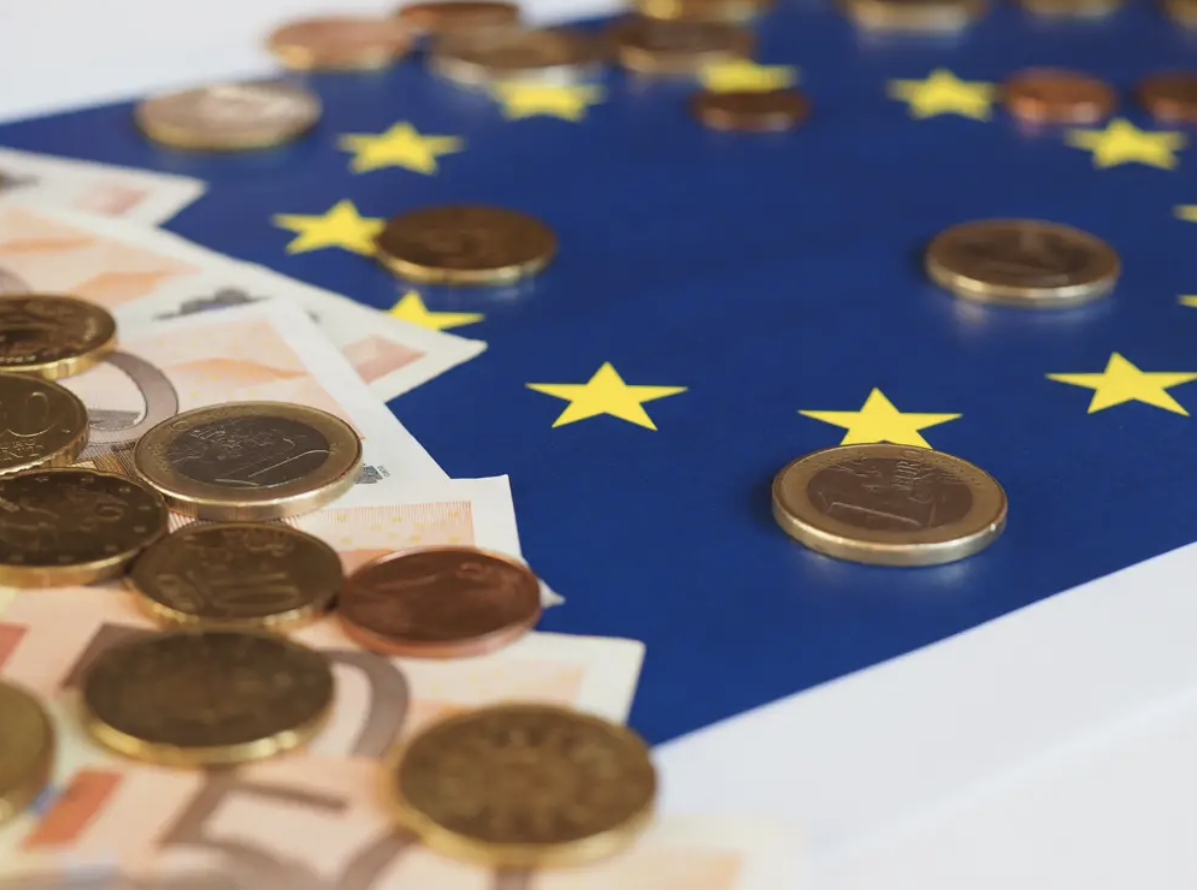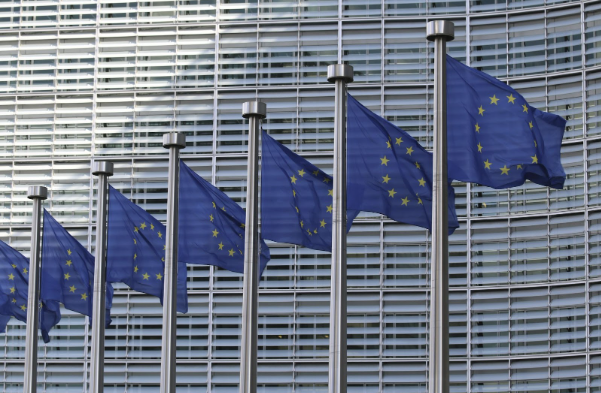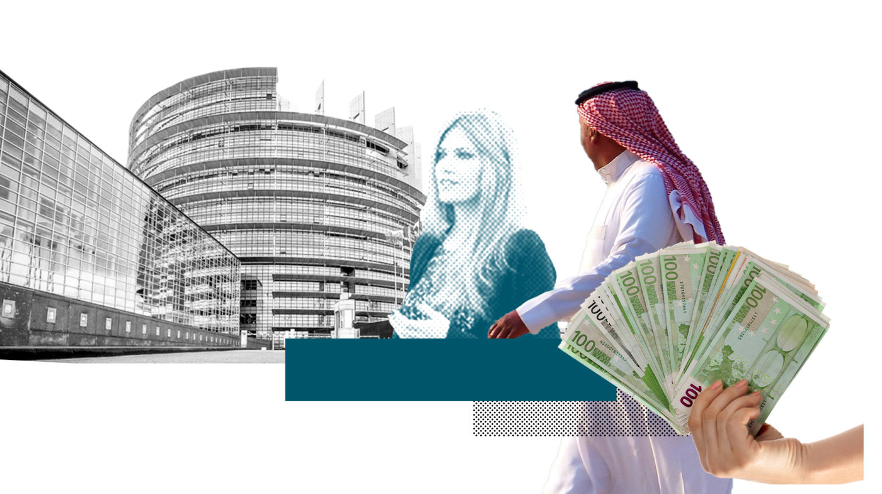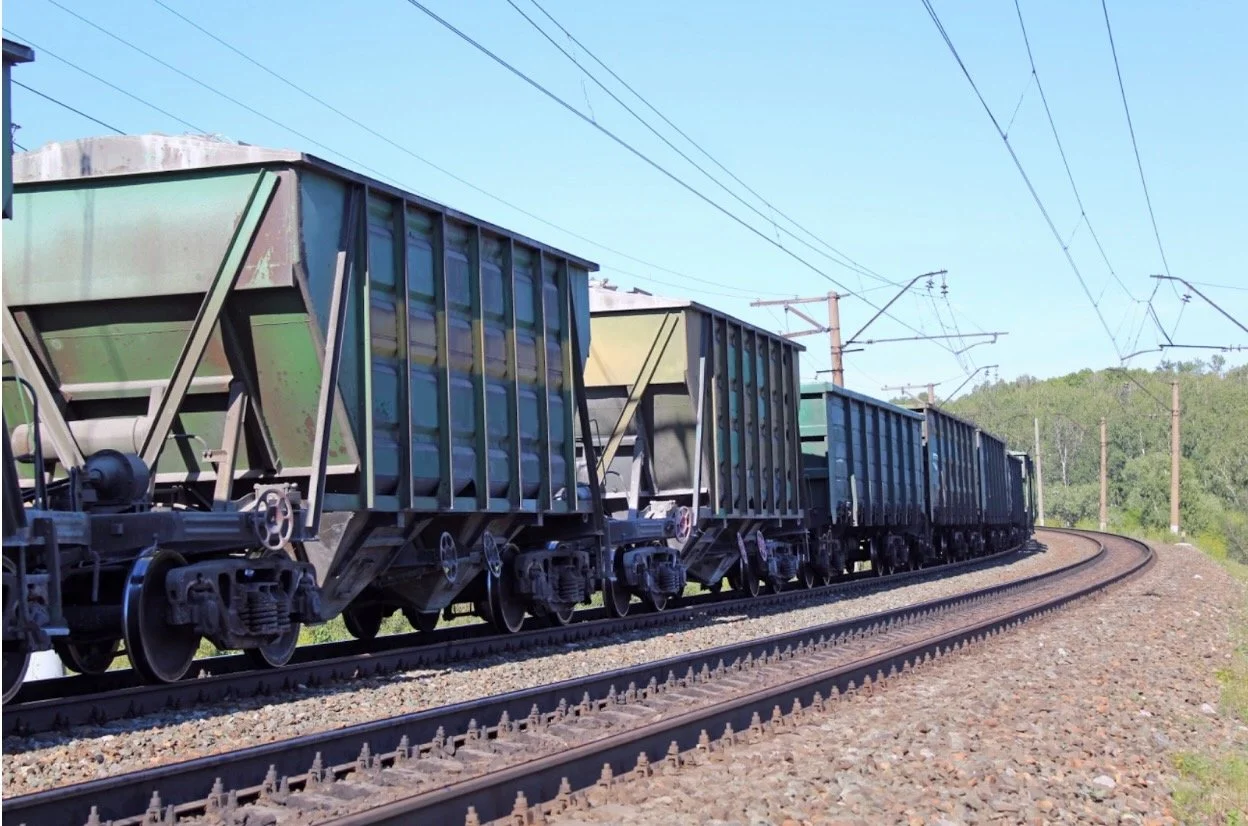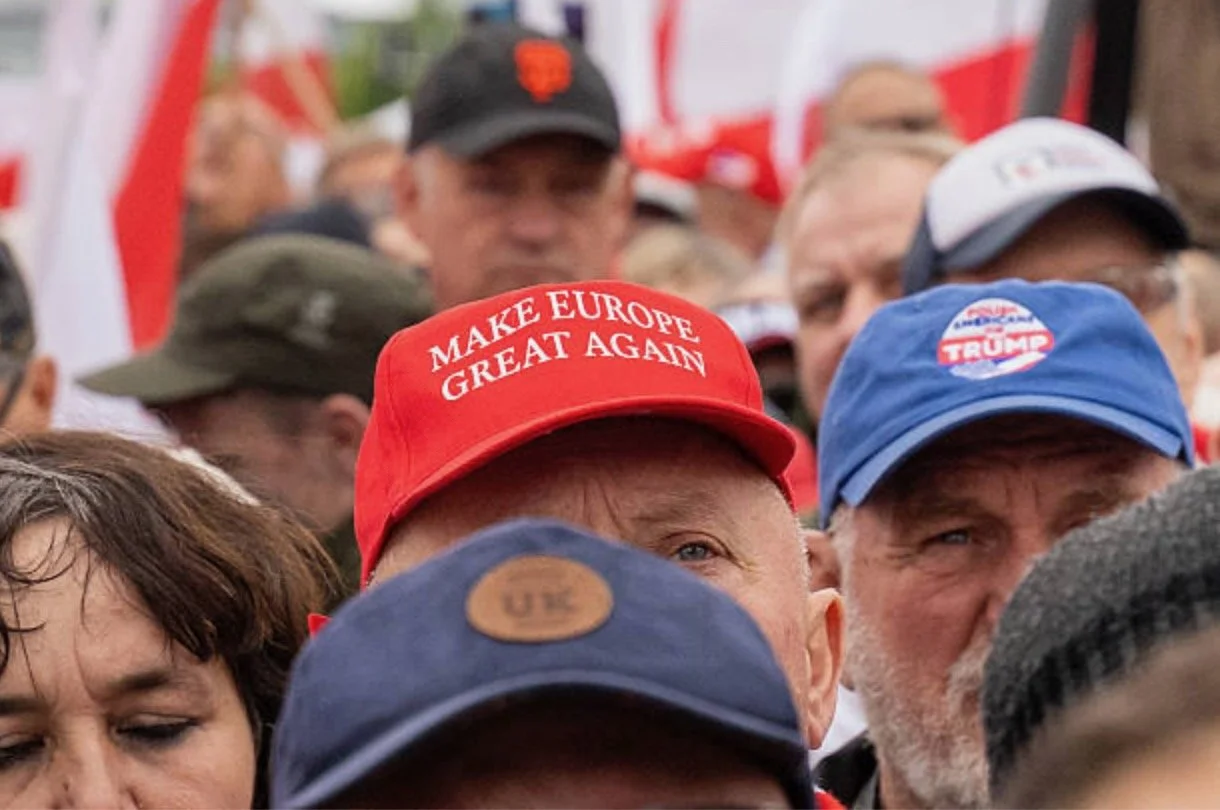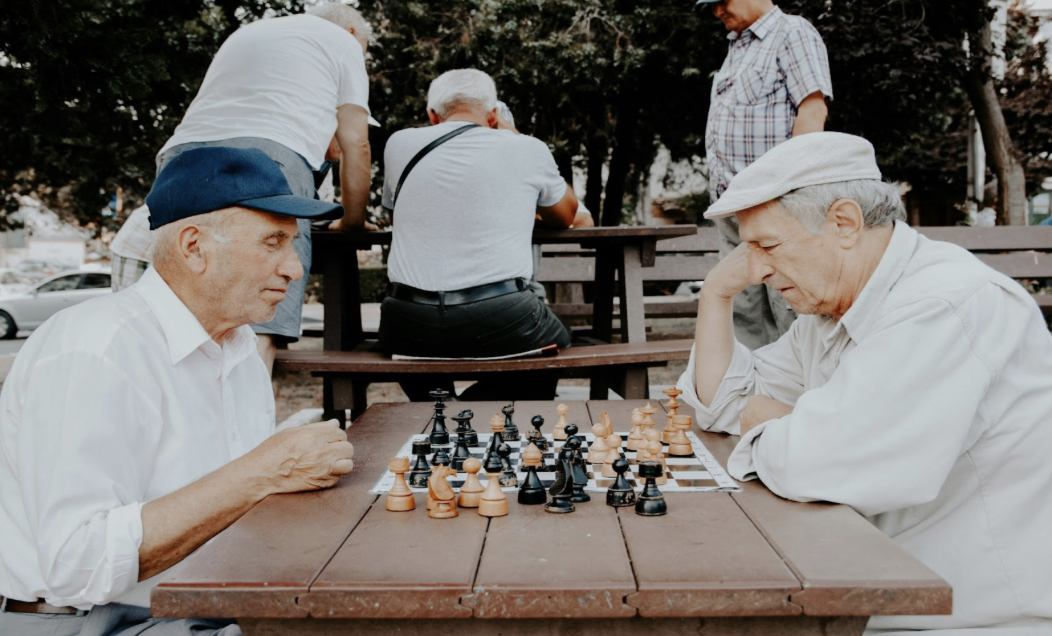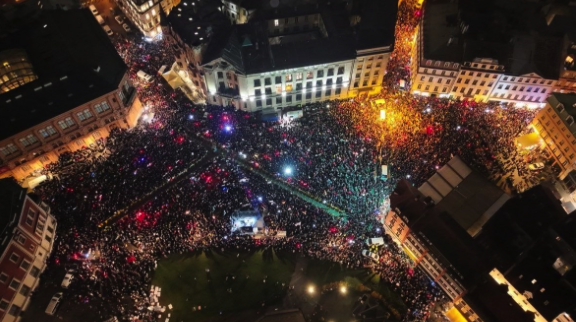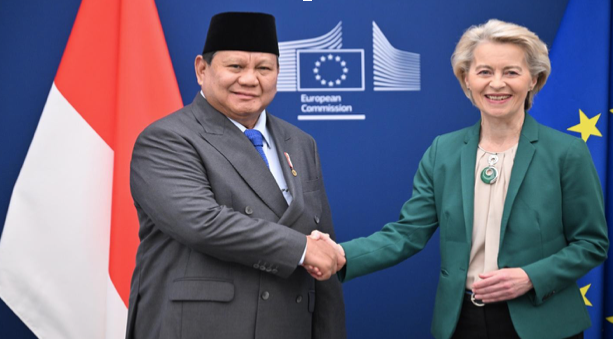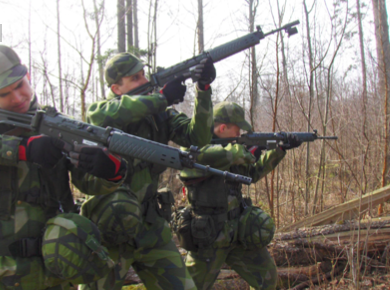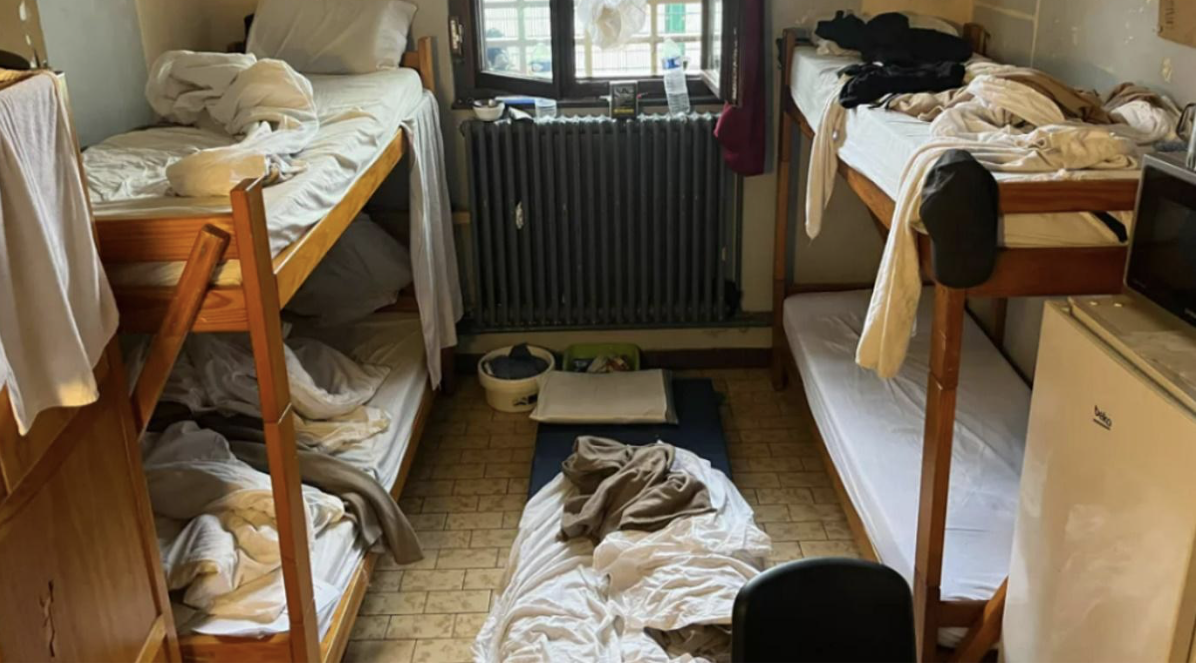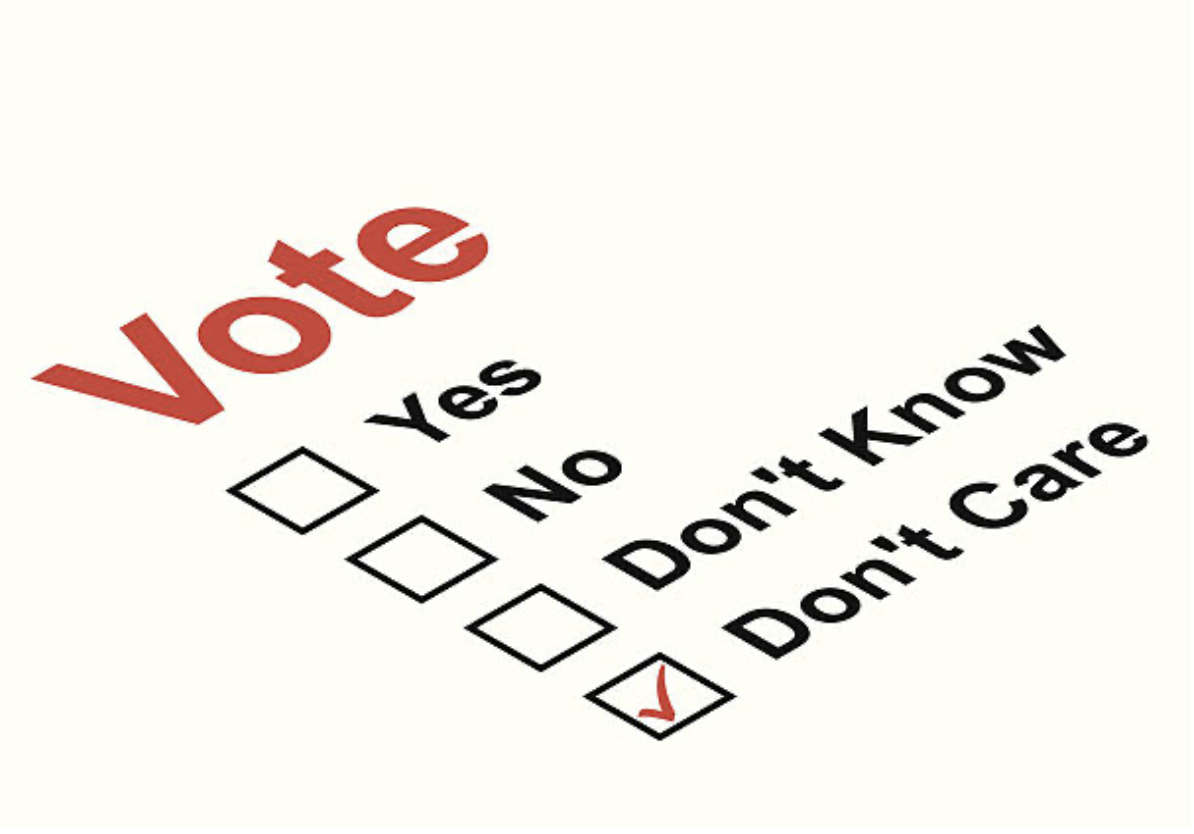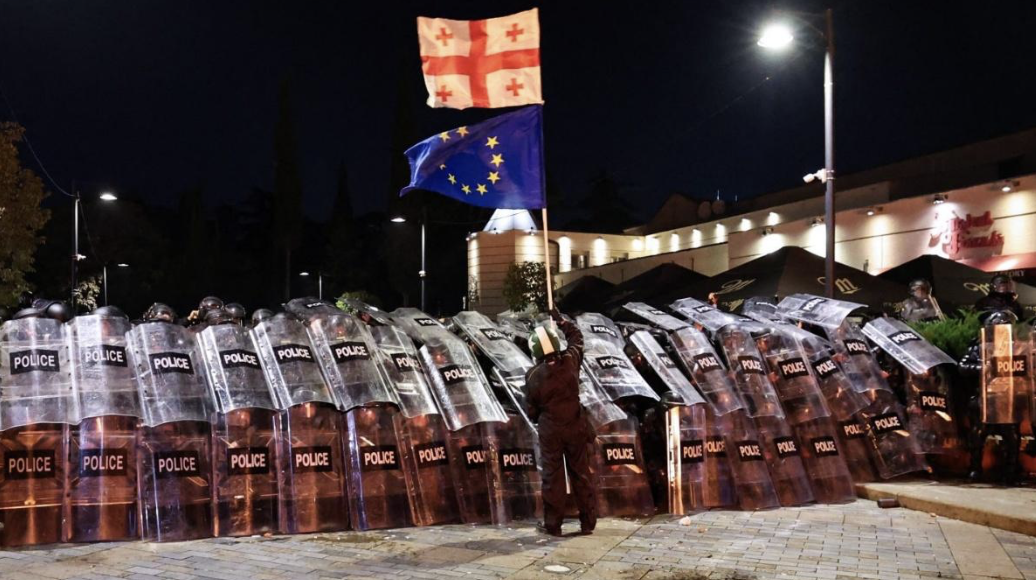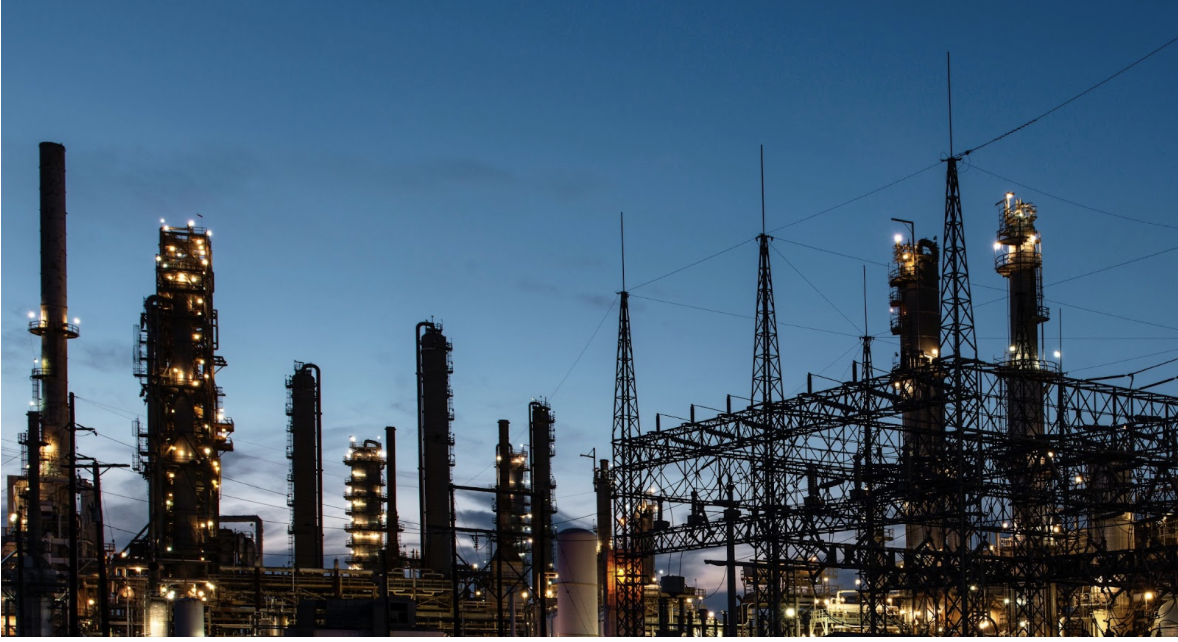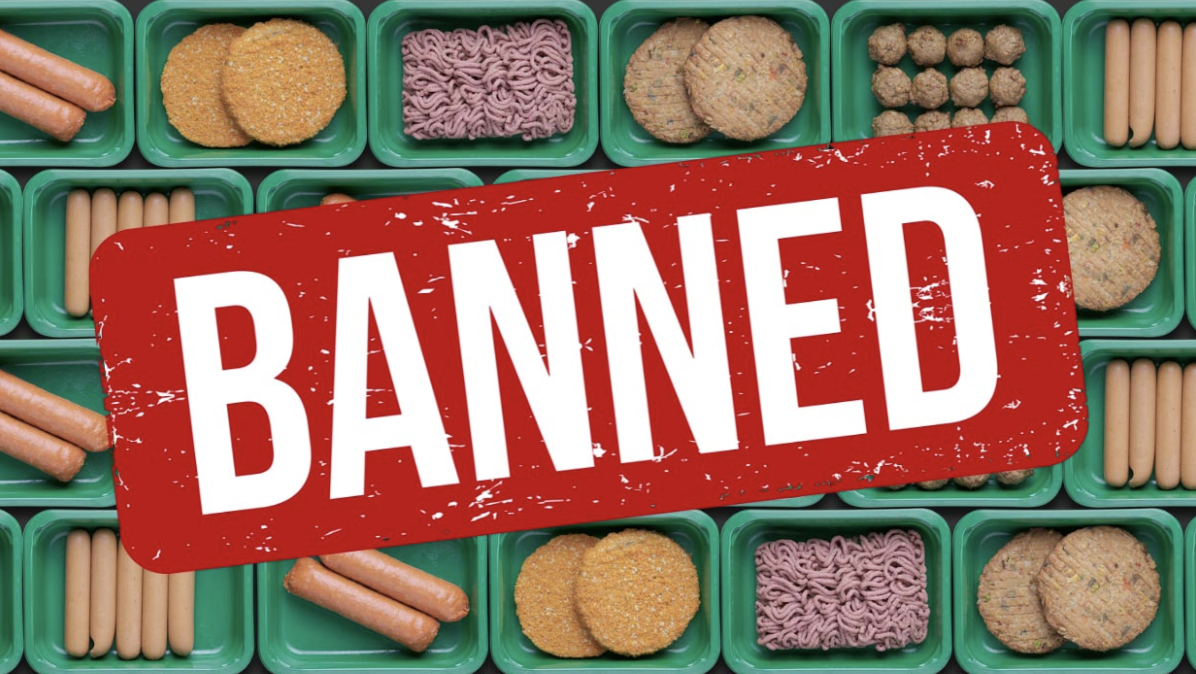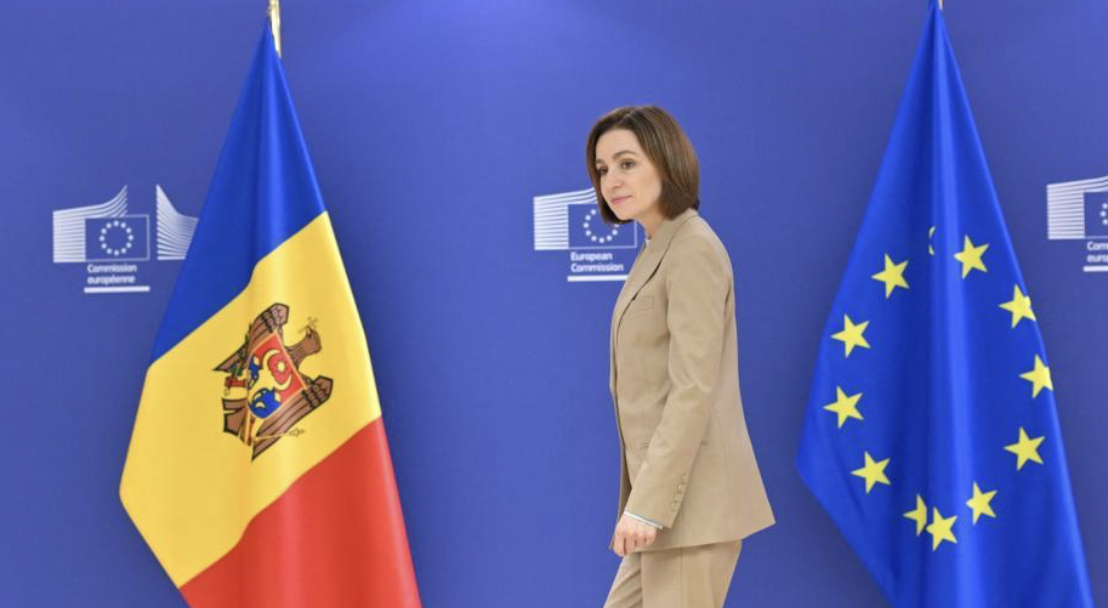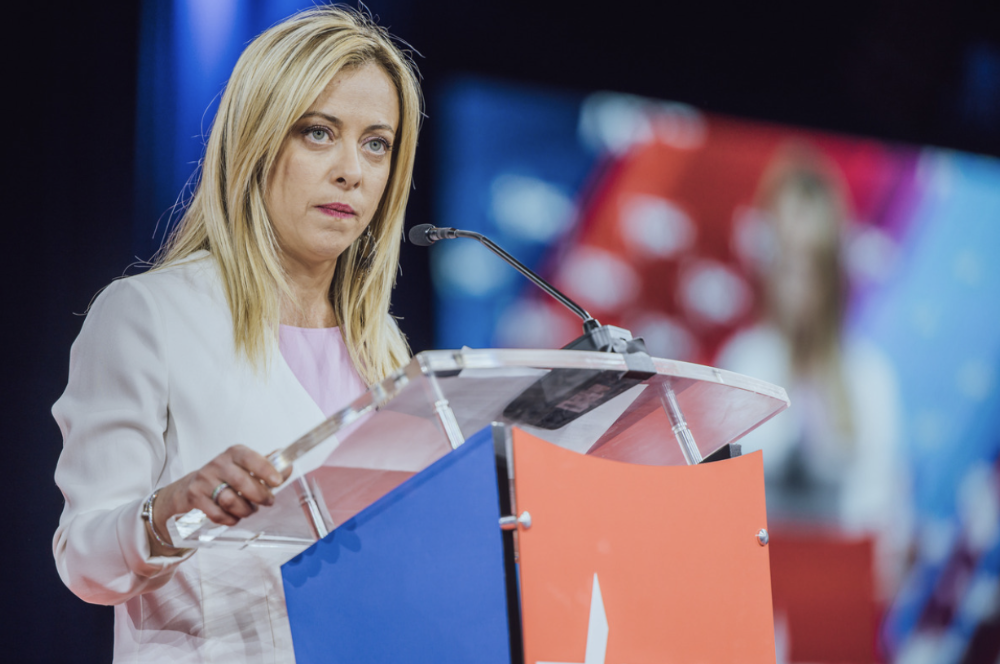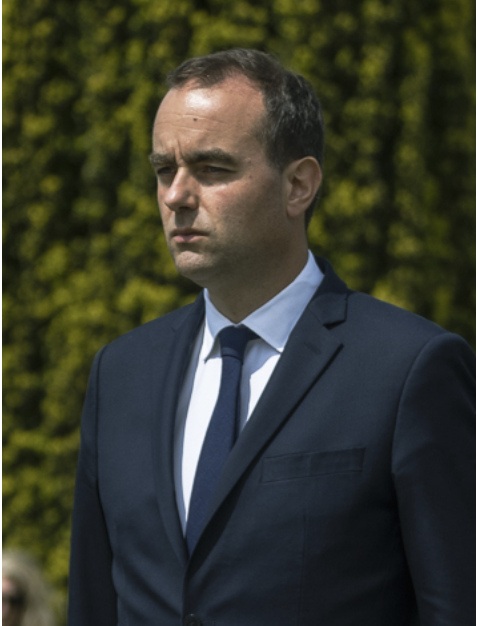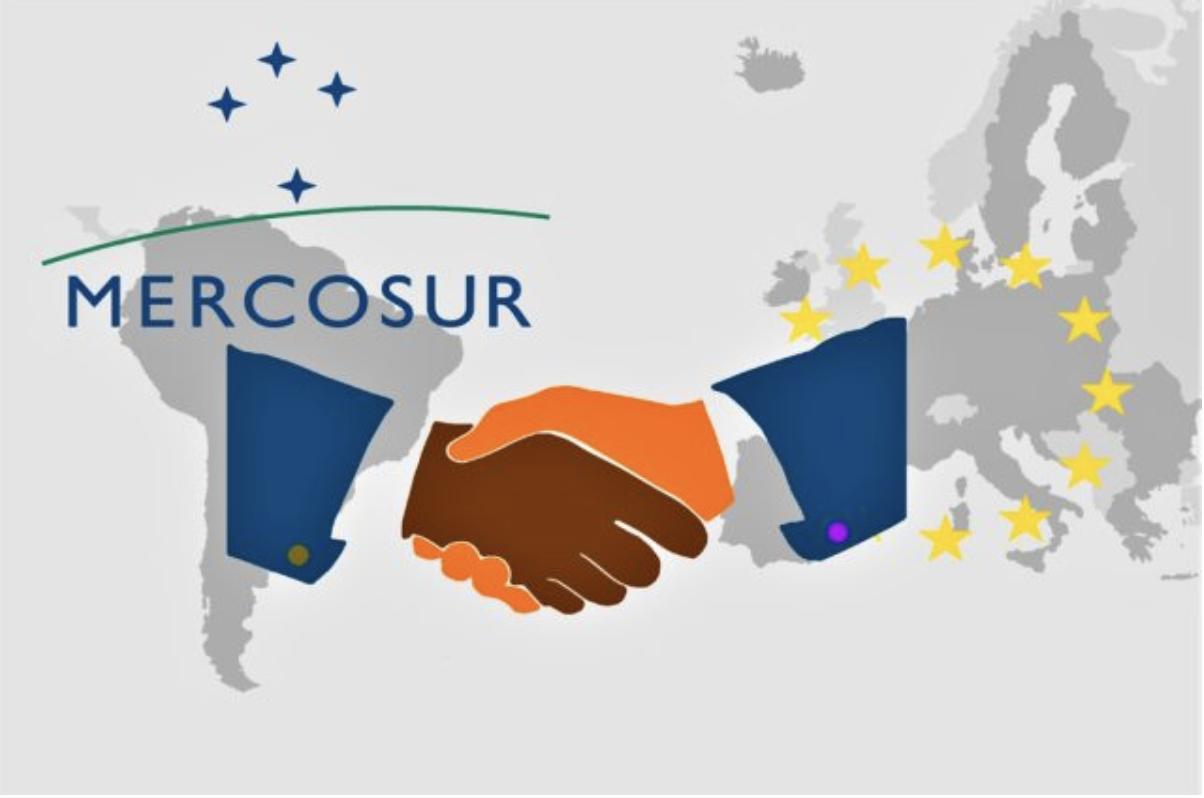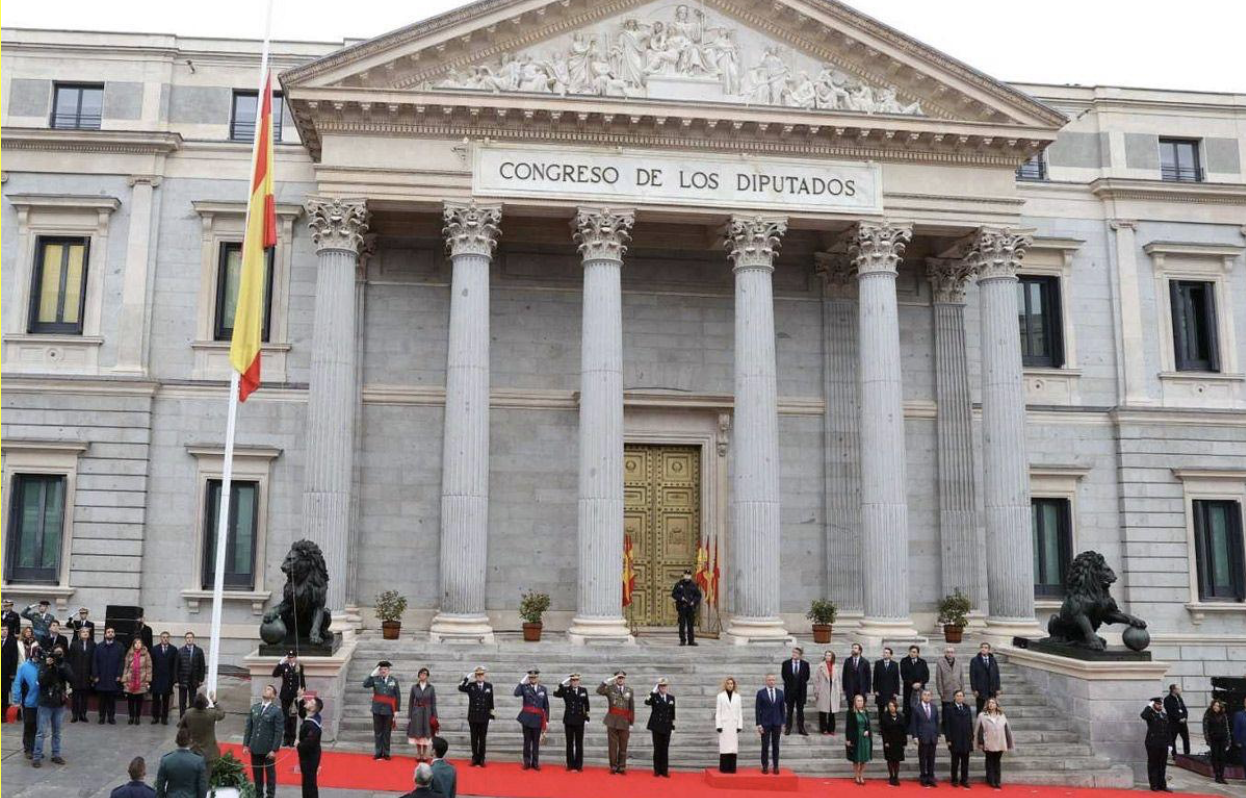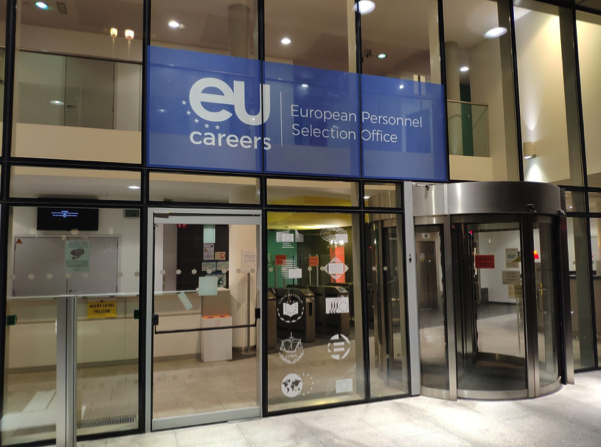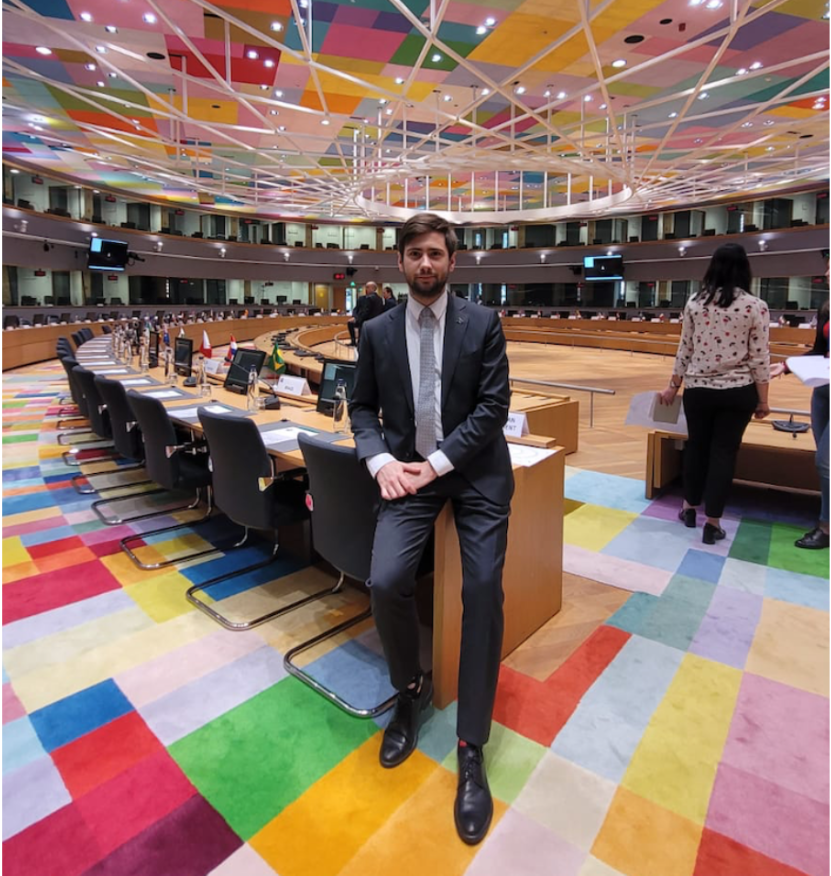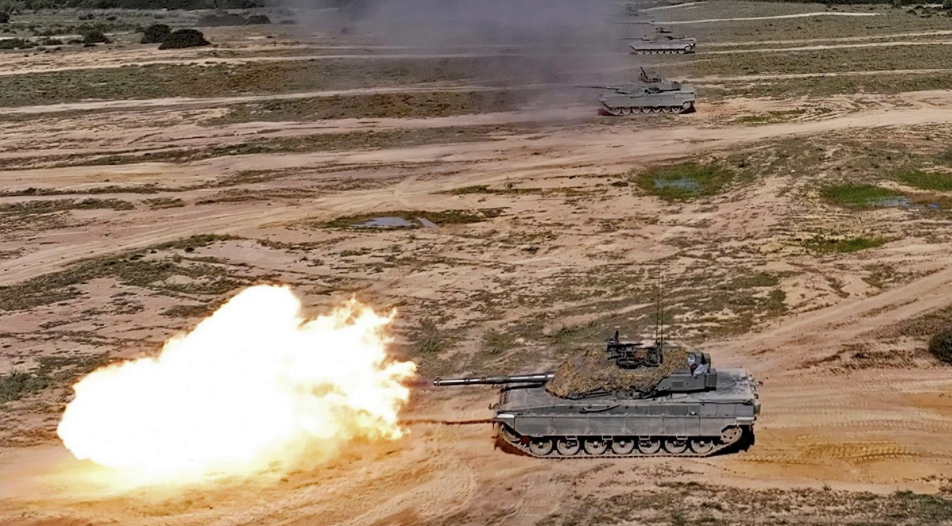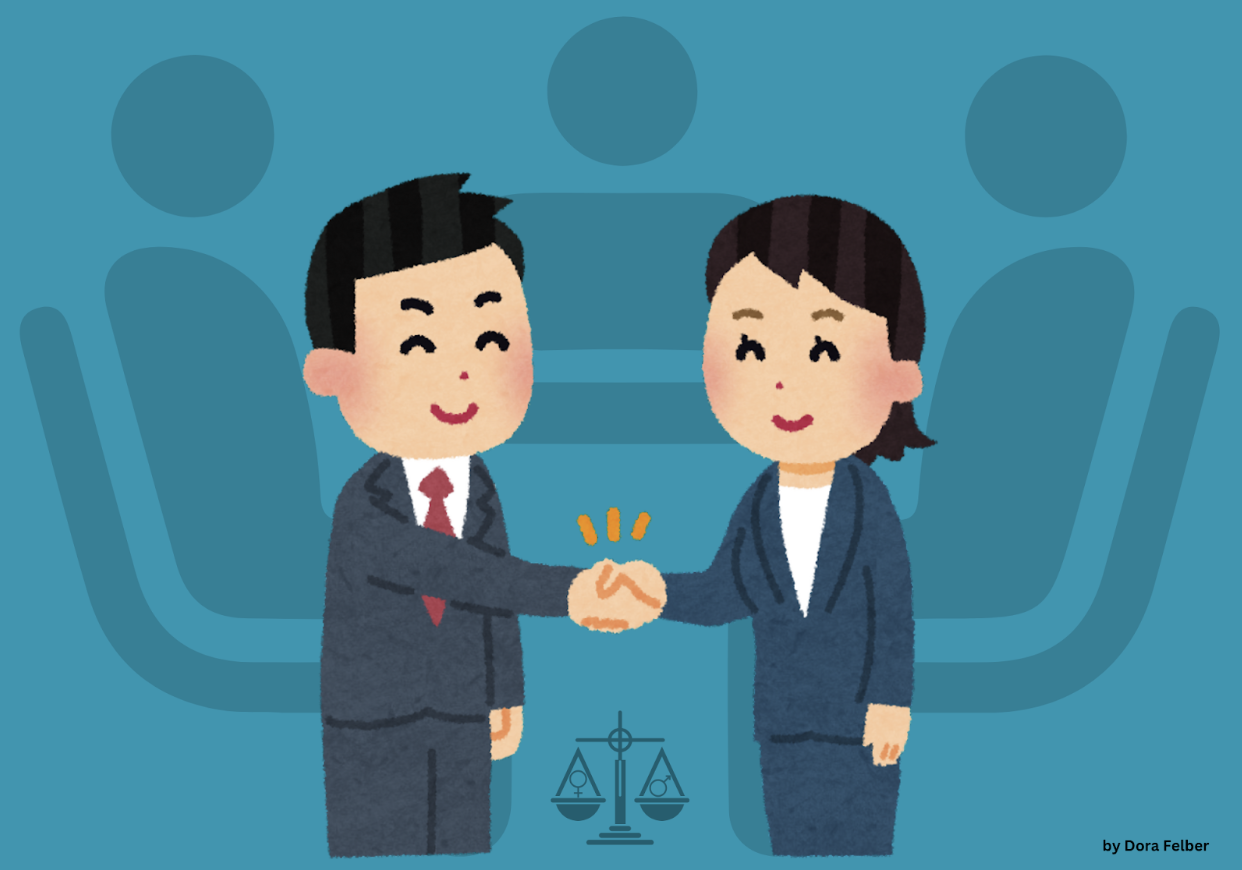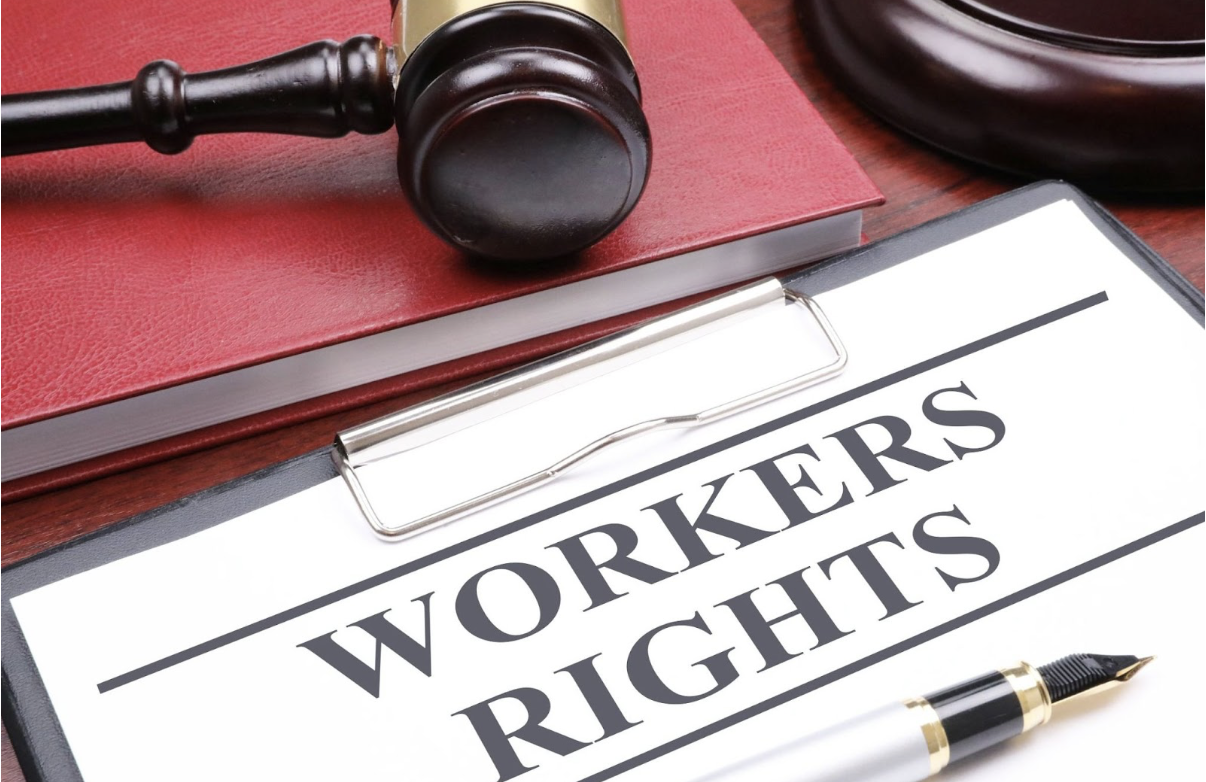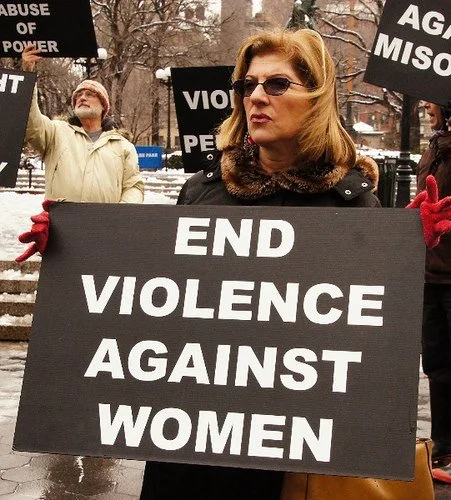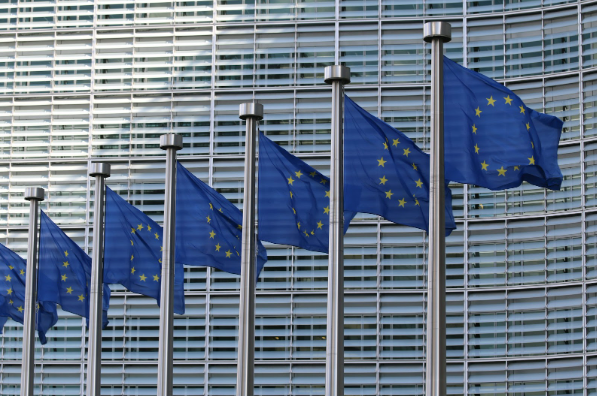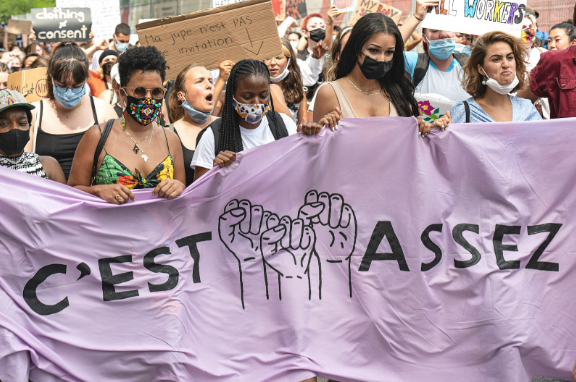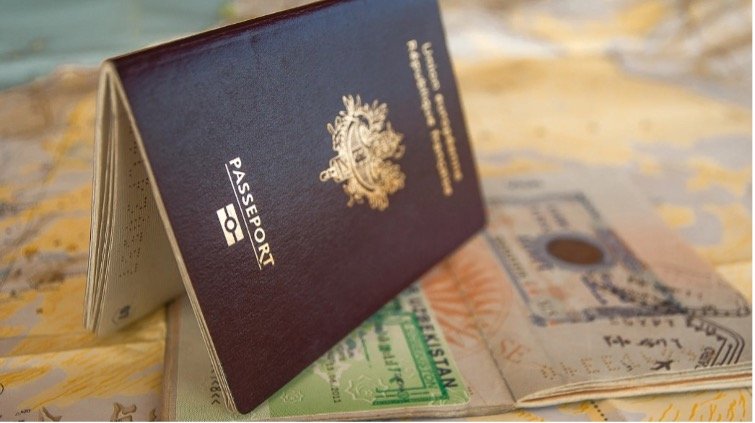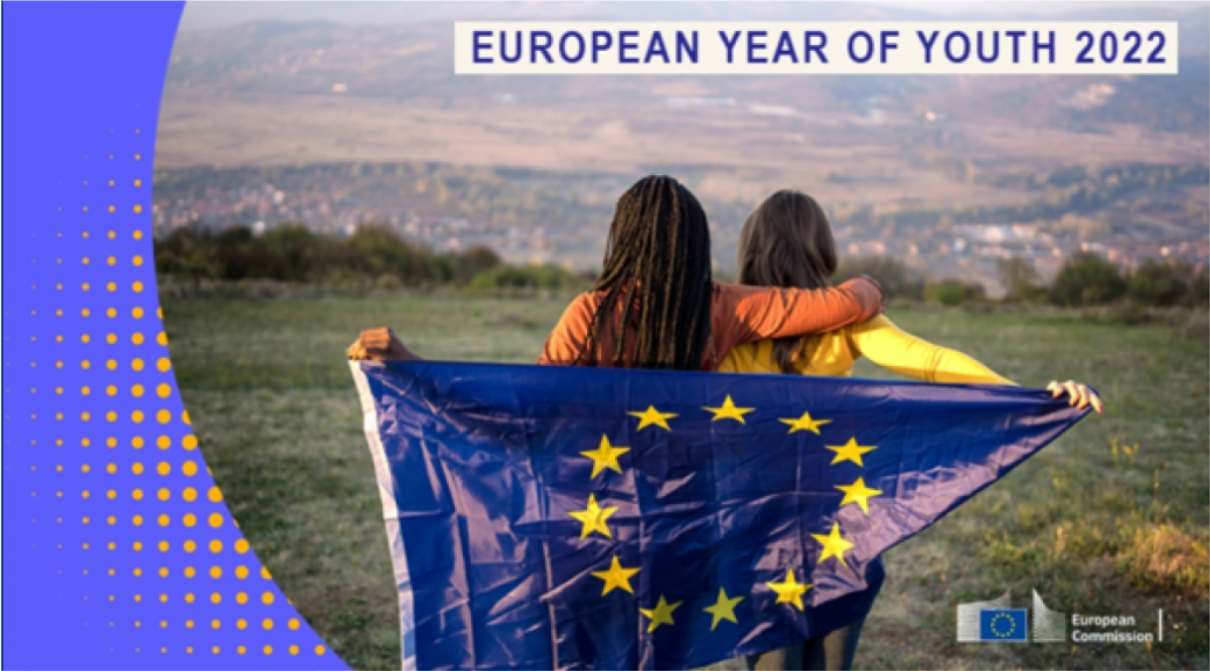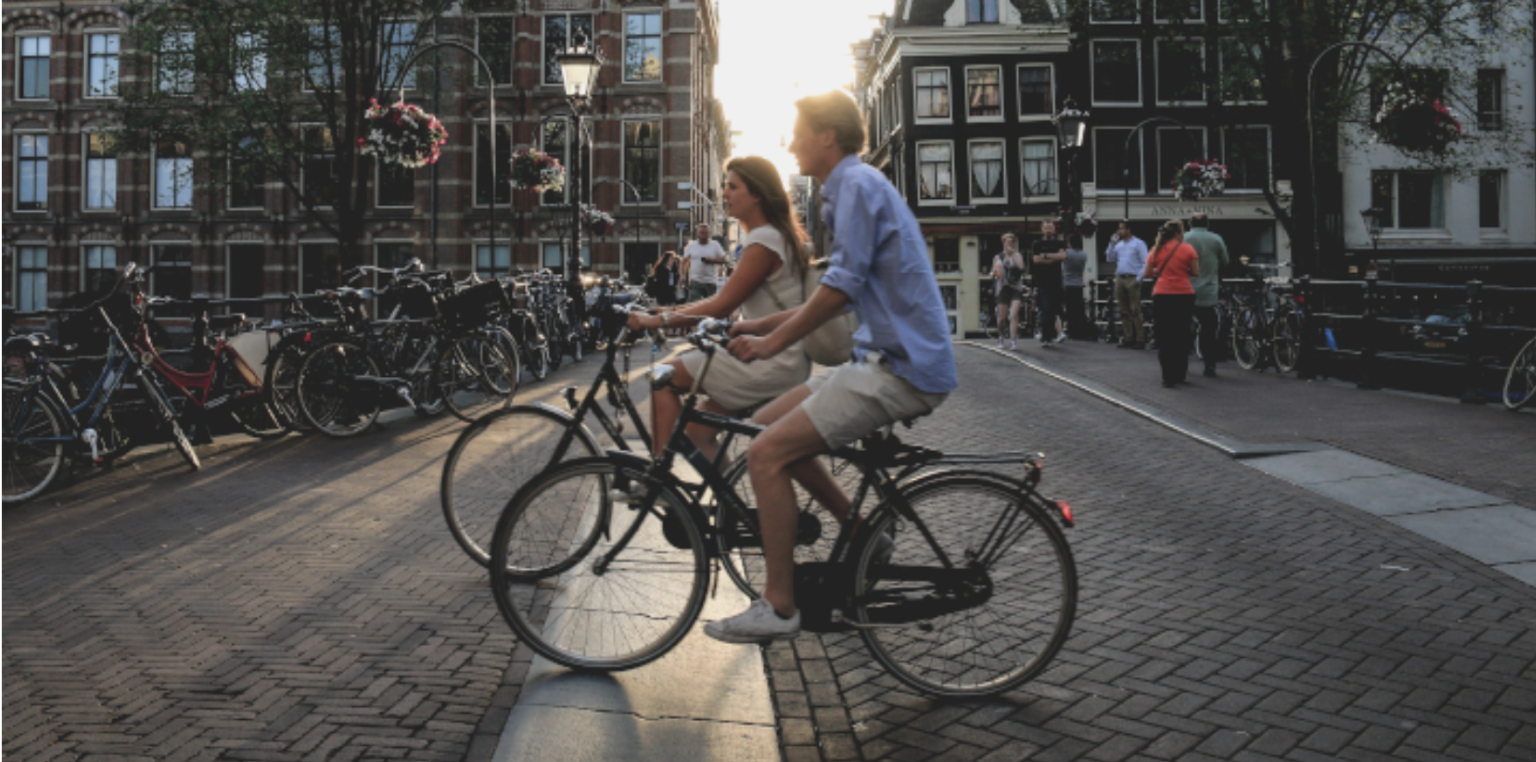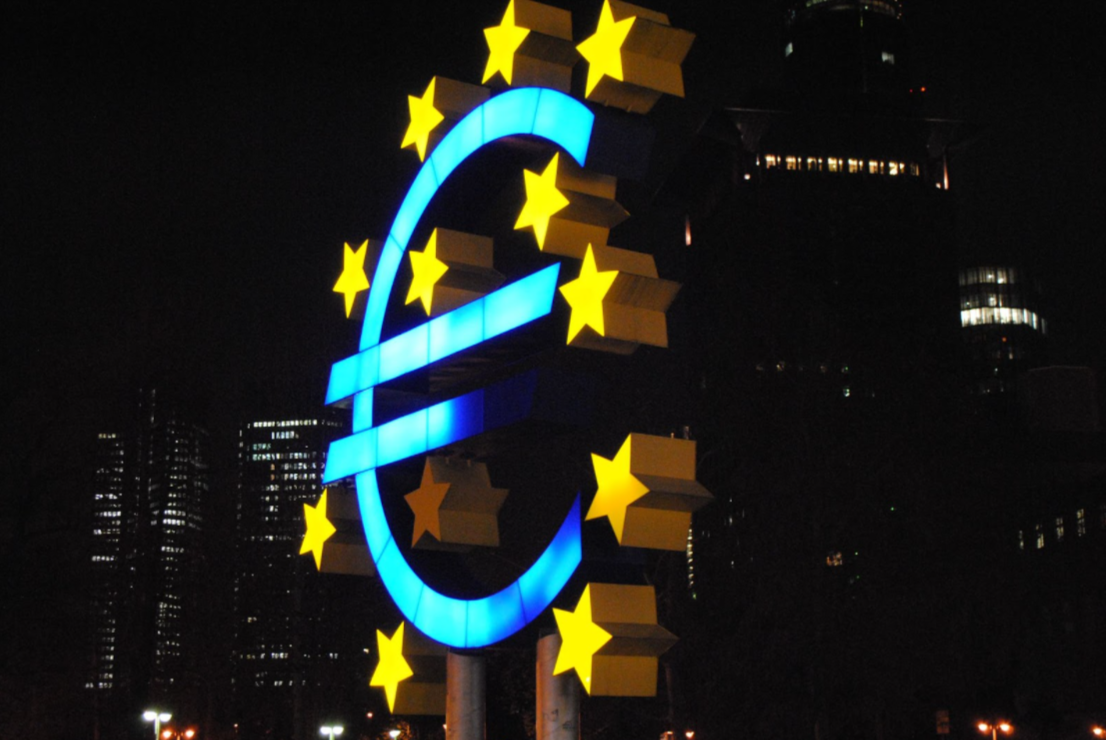
Welcome!
blue&yellow is a platform by students for students. Here you will be able to find information on EU initiatives and legislation, as well as current European ‘hot topics’ and career insights. With its two knowledge pillars, career development and the EU, this project raises awareness while benefitting the student community as a whole.
Know Your Union
By: Olaia Mujika Anduiza
Estimated reading time: 5 minutes
At the beginning of December, I wrote about the need to reform cohesion policy as outlined in the 2021–2027 Multiannual Financial Framework (MFF). Today, I look at the European Commission’s plans to overhaul this policy, published in July 2025 alongside the proposal for the 2028–2034 MFF.
The context is key: the Commission is aiming for a budget that is simpler, more flexible, and more effective. Within this broader push, cohesion policy is set for a major redesign in the same direction.
By Juliane Trabandt, ca. 3min
When we think about the place of literature in society, we can quickly deduce that its main purpose has long been to provide social commentary and to reflect on cultural norms and tensions. Literature is, of course, not the only medium that does this – but it has certainly been one of the oldest. We only have to think of Austen, Shakespeare, or even Euripides. However, as a society, we have moved away from literature as a common frame of reference and turned instead toward digital media. I am not suggesting that literature has become irrelevant, yet in the age of social media it must now fight for our attention and share its cultural space with movies, TV shows, short-form content, and of course, memes. In the digital age, memes – much like literature once did before the internet – function as a medium that communicates ideas, humour, and social commentary at remarkable speed. In this article, I will explore whether memes can carry the same cultural significance and meaning as traditional literature.
By: Olaia Mujika Anduiza Estimated reading time: 5 minutes
Lately, disputes over the next Multiannual Financial Framework (2028–2034) have been making headlines. This is no surprise: the MFF, as the EU’s long-term budget, is central to economic and financial planning and shapes a wide range of EU priorities. As a result, its drafting always involves significant disagreement and negotiation between institutions, political parties, and Member States.
What did come as a surprise this year was that the Commission’s proposal aims to deeply reshape core EU policies, including cohesion policy. In fact, in this policy area, the Commission is even going against the advice of its own key experts on reform options.
To better understand how cohesion policy works today and how the Commission proposes to change it, a concise two-part series on the topic will be published. The first article outlines the current architecture of cohesion policy, while the second will examine the Commission’s proposed reforms.
Let us begin with the first.
By: Gabriel Panza Read time: 4 Minutes
The Balkan country, Albania, known for its cultural tradition of “Besa” and its stunning coastlines, has recently come into the spotlight with its progress towards EU accession. Recently, on November 17th, Albania opened its final cluster of topics needed for EU membership negotiations, covering agriculture and fisheries, food safety, and cohesion policy. This marks a significant step towards Albania’s eventual accession, as accession talks are expected to end by the end of 2027. Prime Minister Edi Rama has claimed that Albania’s accession will be completed by 2030, a claim initially met with skepticism. However, given that EU negotiation processes have gone swimmingly, Albania’s goal of accession by 2030 appears increasingly likely. But what is the history of Albania’s accession to the EU? And what kind of relationship has Albania fostered with the EU?
By Seán Doherty, reading time: 3 minutes
The EU has, for some time now, been deliberating on how to keep funding its military support for Ukraine, as well as financing the rebuilding of the country when the war eventually comes to an end. The need for a collective European solution to this issue has been exacerbated since Donald Trump regained power in the US. Since his January 2025 return, the President has stated several times that his nation would cut support for Kyiv if no progress on a ceasefire agreement was made. Since then, the US has halted all military and financial support, instead sending weapons only on the condition that these weapons are paid for by other NATO countries.
By: Lavinia Tacke, reading time: 3 minutes
The Commission's proposal for the new annual budget is officially out! But now it is up to the Council and the Parliament to decide on the EU’s spending in 2026. The initial drafts aim to reinforce competitiveness, continue support for Ukraine, strengthen security and defense, and advance green and digital transitions. The draft 2026 budget includes some ambitious plans as it aims to address “recent, unpredicted developments”. However, there are conflicting opinions from the Parliament and the Council as they enter the negotiation stage.
By Gabriel Panza, reading time 4minutes 50 Seconds
Imagine a vibrant hub of economic collaboration that spans an entire continent—South America’s Mercosur is exactly that. Mercosur directly translates to the Southern Common Market and is a trade bloc that aims to boost economic integration across the region. What is its primary mission? To create a competitive field where national economies can collaborate, encourage business growth, and attract investment opportunities. Since its creation, Mercosur’s Founding members have sought to expand their markets by establishing international agreements to open their markets to all other continents. Today, this ambitious trade bloc stands tall among the top 5 world economies, forging cooperation accords with nations worldwide. As Mercosur continues its global expansion, it is not only shaping the future of trade but also opening new opportunities that could soon affect you.
By Anna-Magdalena Glockzin, Reading time: 2 min
In the context of the myriad of geopolitical events that happen very quickly, the EU’s head of foreign affairs Kaja Kallas features prominently on the international stage. For example, in her direct statements against Russia and in favour of committed (military) support for Ukraine (“The EU wants Ukraine to win this war”). She has been in office since December 2024, having the role of the High Representative for Foreign Affairs and Security Policy and Vice-President of the European Commission. But who is Kaja Kallas and what has she done so far? Time to take stock.
By Emma Guastone (EG) & Federico Fo (ECA Maastricht), Reading time: 5:15 minutes
In recent years, the world has witnessed a considerable increase in international tensions, becoming extremely dangerous from this point of view. In this regard, acts of terrorism have become a standardized tool to increase international instability. Thus, obliging countries to look for new solutions to support counterterrorism operations. Particularly, Europe has made considerable progress when referring to European collaboration to fight terrorist threats. While most of the competences for counterterrorism are held by individual States, the collaboration among them is supported on many levels by a series of different international organizations independent from each other. Nominally, these institutions consist of the European Union (EU), the Council of Europe and the North Atlantic Treaty Organization (NATO). This article aims to explore in what way these organizations support the already mentioned collaboration.
By Anna-Magdalena Glockzin, 3 minutes.
Following up on the first article on the New European Commission, this piece will take a closer look at the Commissioner hearings that the European Parliament conducted in order to “investigate” the potential candidates for the New Commission. This way MEPs ensure that the candidates are fit for the job and, at the same time, that MEPs have some influence in the selection process of the Commissioners, who will then be responsible for drafting laws and setting the political agenda. However, whether the persons who are nominated for the job are actually suitable might be a secondary criterion. Strategic decisions and party politics play an important role too. In order to perform well in the hearings, the candidates have to study the entire EU legislative acquis in one month, they can get used to the process by engaging in mock hearings (although most of the nominees don’t do that, which might be a question of ego, since these mock hearings are conducted by their staff), and they have to practice a fair amount of lobbying with the MEPs. But which were the most interesting hearings?
By Anna-Magdalena Glockzin, 3 minutes.
Finding a team that works well together and is fit for the job is always a big challenge. But if one has to take into account preferences of third parties and the political messages attached to the team’s selection, it gets even messier. However, this is the task that European Commission President (of the current as well as the new Commission) Ursula von der Leyen had to manage when nominating her new team of Commissioners. But let’s start from the beginning.
By Tillie Morris, 6 minutes.
The re-election of the pro-European Prime Minister in Poland, Donald Tusk, stirs questions about whether the alliance between Poland, Germany, and France will be the stronghold for Europe’s future.
By Federico Fo, 6 minutes.
Maastricht set the stage for the 2024 Elections for the European Parliament. Eight Spitzenkandidaten have started their election campaigns for their European parties and faced off in a fierce debate. All eyes lie on the current Commission President Ursula von der Leyen, seeking re-election for another five year term. Yet, candidates from the far left to the far right were convinced that they can halt her quest and swing the vote in their favour.
By Carlo Civitarese, 12 minutes.
Maastricht set the stage for the 2024 Elections for the European Parliament. Eight Spitzenkandidaten have started their election campaigns for their European parties and faced off in a fierce debate. All eyes lie on the current Commission President Ursula von der Leyen, seeking re-election for another five year term. Yet, candidates from the far left to the far right were convinced that they can halt her quest and swing the vote in their favour. Heated Topics on Foreign and Defence Policy, EU Democracy and Climate Change will decide who will lead Europe in this time of instability and change.
By Tillie Morris and Carlo Citivarese, 8 minutes
Organised by Politico, the Maastricht debate was held on the 29th of April, and they invited seven candidates who are running for the position of European Commission president. The candidates had the opportunity to share their positions on three topics, climate change, foreign and security policy, and EU democracy chosen by young people through a Maastricht University survey. A focus of the event was to include young people in EU politics, which was evident as many student and youth-oriented associations, such as ECA, the European Youth Parliament and Studio Europa were invited to the event.
By Nora Fotini El-Awdan, 8 minutes.
On Monday, April 29, 2024, the lead candidates (“Spitzenkandidat:innen”) of eight European parties faced-off against each other at the “Maastricht Debate 2024.” The contenders presented and defended their respective visions for the future of Europe ahead of the European Parliament elections in June. The key topics of the debate were selected by Europe’s youth based on a survey conducted by Maastricht University: (1) Climate change, (2) Foreign and Security policy and (3) EU Democracy.
By Sarah Hourquet (MD) & Nurbolat Kambekov (B&Y), 7 minutes.
This article is the first in our collaboration with the Blue & Yellow, the blog of the European Career's Association. We will publish a few different pieces through various media on the upcoming European Parliament Elections happening from 6 to 9 of June 2024. So, keep a look out for this and don't forget to go vote! As this is a collaboration, two writers, one of each journal, have written this piece together.
By Kristoffer Sætre, 7 minutes.
The EU is currently sending a lot of weapons to Ukraine. But wait, aren’t member states such as Austria, Ireland and Malta neutral? Are neutral states allowed to send military aid to states in war? Read this article to answer these questions and find out more about neutrality under international law and its relevance for EU member states.
By Nora Fotini El-Awdan, 8 minutes.
On Tuesday, November 7, 2023, the ECA set off on a two-day study trip to Brussels. It turned out to be a great mix of institution and media visits, networking events, and presentations. We participants returned with a backpack full of new knowledge on career opportunities. Here an overview of the highlights, main takeaways, and a list of links to start off your career in the European Union (EU).
By Jan Herniczek, 5 minutes. The ongoing war in Ukraine has already dramatically changed our world. Finland and Sweden decided to break their decades-old neutrality and join NATO. But why were they neutral in the first place? And what do the Turkish election have to do with NATO membership?
By Eleonora Pizzini, 7 minutes. Working in or for one of the European Institutions implies, in practice, a very good knowledge of at least two foreign languages. Despite 24 official ones, the so-called procedural languages are just three: English, French and German. How important is it to know at least two of them? And why over time many doubts and malcontent have risen across the choice of these three languages?
By Aari Helmelaid, 7 minutes. In December 2022, shocking revelations of corruption and acceptance of bribes from Qatar and other third countries in the European Parliament came to light, involving some of Europe’s top and former politicians like Eva Kaili and Antonio Panzeri. Since then, various suggestions have been debated to rebuild its reputation and reform the European Parliament to become a transparent and corruption-free institution, ranging from prohibiting unofficial friendships with third countries, to creating a whole new EU body specifically responsible for ensuring internal institutional ethics. Read the article to find out the main actors, the hidden criminal networks, and what the future might look like for the European parliament.
By Clara Pastor Hernández, 10 minutes. Human Rights Defenders (HRDs) are individuals or organisations who seek the promotion and protection of civil and political rights as well as the promotion, protection and realisation of economic, social and cultural rights. However, despite their huge efforts towards development and the improvement of living conditions, they are being systematically attacked and silenced through violence in countries with high rates of violence, corruption or autocratic regimes. This article examines the role of the EU as regards the protection of HRDs, and more particularly, it presents Protect Defenders, an EU-funded mechanism coordinated by Civil Society Organisations (CSOs) offering protection and support to HRDs and raising awareness about this topic.
Sara Saccon, 5 minutes. Every 18 months a group of three member states of the Union holds the presidency of the Council of the European Union, one of the most important European institutions. The trio composed of France, Czech Republic, and Sweden is coming to an end, as Sweden’s mandate will terminate on the 30th of June. What challenges have the three presidencies encountered during the past year and a half? How have they dealt with them? And, most importantly, what now? Read our article to learn more!
By Aari Helmelaid, 11 minutes. So you’ve looked at your own Spotify Wrapped for 2022, but have you thought about which countries in Europe held elections in the last year? Read the article to find out about major elections that changed European politics.
By Beatriz Santos Mayo, 9 minutes. The DiscoverEU Interrail Scholarship has been made available to everyone by the EU for several years. 60,000 young people are able to traverse the European continent for free thanks to this initiative's free rail passes. Read more about the Interrail scholarship program, which enables you to visit Europe for free with DiscoverEU in this article!
By Nurbolat Kambekov, 3 minutes. In the age of accelerated technological growth, many governments across the world are concerned about their levels of innovation. Fortunately, the EU is pioneering trend-setting policies to address such challenges. Learn more about the EU’s technological initiative discussed in our recent article.
By Aari Helmelaid, 6 minutes. The European Ombudsman occupies a unique position as an independent supervisor between the EU institutions and European citizens. The contribution made by the European Ombudsman to transforming the administrative practices and pressuring European institutions, bodies, and agencies into better conduct cannot be underestimated, read the article to find out more of the role that the European Ombudsman plays in the EU world…
By Aydin Clara Orberk, 13 minutes. Are you familiar with the court structure and access to courts in the EU? With the creation of the EU and the recent Charter of Fundamentals rights of the EU, individuals may seek access for infringements to their rights not only before national courts, but also before the European Court of Justice. This article covers access conditions to European courts, firstly, and exemplifies the access conditions by introducing climate litigation cases, secondly.
By Leonie Klüver, 6 minutes. Lobbying - what exactly does it mean and how does it tie into the political system? Why is it crucial for the legislative process and a valuable aspect of a democratic political system? Read the article to find out the answers! Within the last two centuries lobbying has become an essential part of politics. In Europe, Brussels is the major hub for lobbying with 11,800 registered lobbying entities.
Beyond the Flags
Security starts at the Rail Station - Interview on military mobility with Terk Felix Kraft Part I
By: Olaia Mujika Anduiza and Lavinia Tacke, reading time: 8 Minutes
While Europe is discussing military issues mostly in terms of conscription and the reconfiguration of alliances, one topic that remains largely overlooked by the broader media is arguably more important than ever: the EU’s military mobility infrastructure. In recent years, the EU has faced a serious backdrop of capability gaps in its military mobility infrastructure. Some shortcomings have become so severe that countries are now considering reactivating long-unused and, in part, dysfunctional infrastructure. The scale and urgency of current demands, driven by support for Ukraine and the extension of NATO's border with Russia due to Finland's accession to the alliance, have exposed the limits of Europe’s existing capacity.
By Tricia Pelser, Estimated reading time: 4 minutes
The United States is widely regarded as one of the most influential nations in the world. Its dominant economic strength, military power, and cultural reach extend far beyond its borders and actively work to shape global trends. However, few movements have generated as much international political resonance as the rise of the “Make America Great Again” (MAGA) movement. Emerging from American conservatism, MAGA has not only transformed American politics, but some view it as leading certain European movements to seemingly mirror its political rhetoric, strategy, and ideology. As right-wing movements have begun and continue to gain traction, the parallels between their messaging and MAGA’s core themes have become increasingly apparent
By Aurora Dagnino, Reading Time: 4 minutes
A recent survey shows that the majority of the population in Britain, France, Germany, Italy, Poland and Spain consider their pension system to be unaffordable.
By: Nikola Kirkov
Reading time: 6 minutes
Latvia’s political landscape has been thrown into turmoil after a controversial parliamentary vote to withdraw from the Istanbul Convention sparked widespread protests and fears of democratic backsliding. As public demonstrations intensify and European partners express mounting concern, the furore has become a defining litmus test for Latvia’s commitment to human rights and EU values.
By: Lavinia Tacke
After nine years of negotiations, in September 2025, the EU officially finalized its trade deal with Indonesia, as part of its efforts to diversify its trade alliances following the Trump tariffs. However, this deal has sparked a debate concerning the human rights situation in Indonesia, the largest economy in Southeast Asia. Has the EU traded its commitment to human rights and its environmental values for an economic deal?
Written by: Anneke Pelzer, Reading time: 4 min
Countries abolished their mandatory military conscriptions, like Sweden in 2010 and Germany in 2011, when peace and security in Europe were still largely taken for granted. Over the past decade, starting with Russia’s annexation of Crimea in 2014 leading up to today’s ongoing Russia’s invasion of Ukraine, armies have become more important again. War feels closer to Europe’s capitals now, urging leaders to think about ways to step up their defense.
Written by: Margaux Baudry, Reading time: 4 min
More than 65,000 “alien” immigrants are currently detained in immigration jails across the United States. A historic record, which we can thank Trump’s administration for. Since the beginning of Trump’s second term, in February 2025, the Immigration and Customs Enforcement (ICE) Agency has been synonymous with fear for many people of color in the US.
Some now sleep with their passports beside them, carry their birth certificates wherever they go, avoid public gatherings, and, in extreme cases, choose not to leave their homes at all. The question looms large: What exactly is ICE, and how did it become such a force of intimidation?
By: Nikola Kirkov, Reading time: 7 min
This week, the European Union awoke to yet another episode of civil unrest in one of its Member States. Just 31 days before its planned entry into the eurozone, Bulgaria has plunged into an unprecedented political situation. On Wednesday, thousands of citizens gathered on the emblematic Independence Square in Bulgaria’s capital, Sofia, rallying around a giant pink piggy bank. The majority of the slogans on the protestors’ banner also featured the animal, a symbol of the ruling elite within the Eastern European country, which has long been accused of robbing Bulgaria of its money, features, and transparency. Following the large-scale protests, the government withdrew the 2026 budget, which had been scheduled to replace the lev with the euro officially. Now consultations are starting from scratch.
Written by: S.J.C Gunning, Reading time: 5 min
Mattresses in bathrooms, prisoners “having to eat their meals standing up or sitting on the floor, sometimes with no access to basic amenities like pillows or clothes-washing facilities,” and even the rape and murder of prisoners by their own bunkmates in overcrowded prison cells are not the anecdotes of a survivor of the gulags but rather features of everyday life for prisoners in more than half of the European Union’s member states. According to the most recent Eurostat survey, taken in 2023, 14 countries had some extra capacity while 13 countries had none at all and had to overcrowd existing cells. However, more recent data from the World Prison Brief adds Portugal and Hungary to the growing number of EU member states with prison occupancy rates above 100%.
What may be surprising is that there is a total absence of a positive correlation between the incarceration rate and prison occupancy rate in the surveyed countries. Cyprus, with by far the worst prison overcrowding crisis in Europe, had an incarceration rate of just 101 (per 100,000 citizens) in 2023. This was well below the EU average of 110 and positioned it on the lower side of the distribution relative to the mode, as seen below
By Aurora Dagnino, Reading time: 5 minutes
Pizza, pasta, lasagna ....everyone loves Italian food! Indeed, Italians are so deeply proud of their culinary traditions that they have even sought recognition of Italian cuisine as Intangible Cultural Heritage of Humanity. As an Italian, I have to admit we can get quite defensive when someone unintentionally ‘offends’ our cuisine by reproducing it the wrong way. Italy’s Minister of Agriculture, Francesco Lollobrigida, clearly felt the same when he discovered Delhaize’s so-called ‘carbonara sauce’ being sold inside the European Parliament in Brussels, calling it ‘unacceptable’. Delhaize's version contains cream and pancetta, which are not included in the traditional recipe from Rome.
By Juliane Trabandt, Reading time: 3min
We are constantly being bombarded with negative news – rising populism, failing democracies, and wars take place increasingly around us. This constant exposure can lead to increasing fears and anxieties around politics and make it hard to stay informed and feel hopeful. It is no wonder then that some of us choose to completely tune out, as it may feel like a negative emotional overload. Others, on the other hand, may choose to treat politics more like entertainment in the form of snippets of debates, memes, or viral clips. This political disengagement is becoming increasingly visible across Europe, and the issue is that it is destabilising our democracy.
By Olaia Mujika Anduiza, reading time 7 minutes
On October 9, China announced a halt on exports of rare-earth processing tools, battery equipment, and ultra-hard materials used in semiconductors, solar panels, and armor-piercing ammunition. These are essential for clean-tech and defense industries, and the EU relies on China for nearly 99% of its supply. However, in the last week of October 2025, China announced a one-year suspension of these export controls for both the EU and the US.
This suspension (importantly, not removal) is good news for the EU in the short term, as it temporarily eases pressure on European supply chains. Nevertheless, in the long run, uncertainty remains due to Europe’s deep dependency on Chinese resources, and the realization that this is about much more than access to critical materials. It is about ideology and global power structure.
Written by: Nikola Kirkov, reading time: 11 minutes
Four years ago, the European Union opened a door for three Eastern European states to pursue the long-dreamt goal of joining the alliance. The ‘Association Trio’, comprising Georgia, Moldova, and Ukraine, came together to sign a joint memorandum expressing their shared commitment to ‘cooperate to enhance their political association and economic integration with the EU.’ Four years later, the three former Soviet states are moving in polar opposite directions.
In the present day, Moldova celebrates a pro-EU victory in recent elections, and Ukraine actively pursues a future within the Union, despite the ongoing war. And then there is Georgia. A country on the crossroads between Russia and Europe, where protests have been ongoing since last year’s parliamentary election. The demonstrations and pressure from the EU have not been able to shake the Georgian Dream’s authoritarian and Kremlin-inspired chokehold on the country’s politics, which aims at realigning the country with Russia, of whose Soviet empire it once formed part.
by Margaux Baudry, reading time 2 min 40
The Great Energy Decoupling
Launched in May 2022, REPowerEU aims to sever Europe’s reliance on Russian hydrocarbons. The initiative rests on four pillars: saving energy through efficiency, diversifying oil and gas suppliers, accelerating renewable energy, and investing in infrastructure such as LNG (Liquefied Natural Gas) terminals and hydrogen networks.
The numbers show progress, but not victory. Russian gas accounted for 40% of EU imports in 2022, 15% in 2023, ticked up slightly to 19% in 2024, and is expected to fall to 13% in 2025. It’s a sharp decline, but the Kremlin’s energy shadow hasn’t disappeared.
By Tricia Pelser, estimated reading time: 6 minutes
At the beginning of October, a proposal known as Amendment 645, aimed at strengthening farmers' position in the agri-food supply chain, was brought to the European Parliament. This proposal included a bizarre and seemingly unnecessary amendment to restrict the use of so-called ‘traditional’ meat-related terms, such as “burger”, “steak”, and “sausage” for plant-based alternatives, which the Parliament surprisingly approved. But what does this amendment even mean? How is it relevant, and where did it come from?
By Seán Doherty, reading time: 4 minutes On 28 September 2025, Moldova’s parliamentary election took place amid significant tension in the former Soviet republic. The choice for many voters was simple: a pro-European party striving for EU membership or a shift back to Russian-friendly relations and heavy Kremlin influence over the nation of 2.5 million inhabitants. In an election viewed as pivotal for the country’s future direction, Moldovan president Maia Sandu’s Action and Solidarity Party (PAS) was pitted against the pro-Russian Patriotic Electoral Bloc. Given Moldova’s EU candidate status since 2022 and Sandu’s intention to join the European Union by 2030, the result has been decisive for Moldova’s future.
Despite severe allegations of Russian interference in the election, Sandu’s pro-EU party went on to outperform pre-election polls and emerge with a convincing majority: just over 50% of the vote. This also means it can form a government without needing any coalition partners, something that could have hindered the party’s EU accession plans. Patriotic Electoral Bloc finished the election in second with 24%. That three-quarters of the 1.6 million voters supported either PAS or Patriotic Electoral Bloc highlights the importance of the election. One could argue that this was a straight shootout between Europe and Russia.
By Anneke Pelzer, Reading time: 4:30 min
If you opened your phone in the morning of the 10th September you most likely were greeted by headlines like „Poland says it shot down Russian drones after airspace violation“ or „Poland downs drones in its airspace, becoming first NATO member to fire during war in Ukraine“. And it was surprising: the night before, at least 19 Russian drones invaded Polish airspace. This marked the most serious Russian provocation since the invasion of Ukraine in 2022.
By by Margaux Baudry, reading time 2min30
While the rest of Europe watches each election anxiously, wondering if this will be the one that brings a far-right victory, Italy crossed that threshold three years ago. As the country celebrates this anniversary with Giorgia Meloni’s Fratelli d’Italia (Brothers of Italy) leading the government, it’s worth asking: Did Italians truly get the transformation they were promised, or merely a new face preserving the same old system?
Is France Ready for the Sixth Republic?
This is one of the headlines we have repeatedly seen over the last few months – if not years. Three weeks ago, these calls came up again when Prime Minister Lecornu resigned just a few hours after the announcement of the new government. The situation begs the question: what makes France so ungovernable?
The “cows-for-cars” deal: How the EU-Mercosur Pact Rewires Influence and Access By Olaia Mujika Anduiza, estimate reading time: 7 minutes
After more than 25 years of negotiations, the EU-Mercosur Agreement has returned to the forefront of European political and economic discussions. Supporters call it strategic, while critics label it a sellout. However, both parties are reacting to the same reality: this agreement is more than simply about tariffs, rather, it reshapes EU influence, access, and dependence.
50 Years After the Fall of Franco’s Dictatorship - Where Does Spain Stand Today?
By: Lavinia Tacke, reading time: 4 minutes.
Fifty years after Spain’s last dictatorship, the country still grapples with its turbulent past while shaping its future. In 1975, the last dictatorship in Europe came to an end when the Spanish dictator Francisco Franco died on November 20th. The Franco dictatorship was one of the longest in Europe, lasting from 1939 to 1975. It is known for its extreme brutality against the Spanish people, including the establishment of concentration camps, the use of forced labor, and executions. It is estimated that between 200,000 and 400,000 people died “in more than 190 concentration camps.”
by: Jolanka Kocianova Vuong
Reading time 7 mins 20 sec
When writing Part 1 of the article, I did not place on a second article on the political climate in Slovakia. Unfortunately, the situation in Slovakia has not calmed down. It seems that things have further spiralled out of control. Slovakia experienced a coalition crisis at the beginning of the year, causing the parliament to be suspended for months, only to be solved by possible hidden bribery. Once the crisis was solved, the government was free to go on in its typical style: mismanaging an epidemic, assuring Russia of Slovakia’s support, bringing Slovakia’s cultural institutions to the verge of collapsing, and most recently building villas out of Eurofonds. The list goes on and on. Read on to find out more.
By Kristoffer Saetre and Agnese Porro
Reading time: 4:30 min
“The era of the peace dividend is long gone. (...) Europe is ready to step up.” With these words, Commission President Ursula von der Leyen presented the Commission’s White Paper on European Defence. In a paradigm shift, the EU responds to evolving threats in the contemporary European security environment.
By Ben Rosenbaum, Reading Time: 3 minutes
Stunning, remarkable, historic…those are just some of the words used to describe the recent election results in Australia on the third of May. Against the odds, the Australian Labor Party won a second term for Prime Minister Anthony Albanese, in what is widely seen as a repudiation of US President Donald Trump and his ideological partners in Australia. However, can Trump alone be blamed (or thanked?) for the result?
By Gabriel Panza, 2 Minutes 30 seconds
Imagine waking up ready to start your day, only to be plunged into darkness without any warning. On April 28th, this alarming scenario became a reality for millions across Spain, Portugal, France, and even Belgium. This event left residents and businesses across the Iberian Peninsula scrambling, raising questions about the resilience of Europe’s energy grid and the threats lurking beneath modern power networks.
Author: Miruna-Antonia Aniculăesei
Read time: 3:28
Since 1974, the European Union, formerly known as the European Communities, has been conducting the Standard Eurobarometer survey as a way to spread information about the organisation itself and gather support, as well as as a method of measuring the public level of satisfaction towards the EU. For almost 51 years, the Eurobarometer has shown the EU publics’ overall opinion on a diverse selection of EU matters and the way in which these opinions shift in response to crises After a turbulent period of crises, one would expect a decrease in public support for the Union, but what do the public opinion polls actually tell us about citizens’ reactions?
By: Lavinia Tacke
Reading time: 6 minutes
On Monday, April 28, Canada elected a new Prime Minister after the former leader, Justin Trudeau, resigned as leader of the Liberal Party and as Prime Minister in January. The new Prime Minister is Mark Carney, who already took over after Trudeau’s early resignation. Carney’s main campaign promises were to cut taxes for the middle class and to remove trade barriers between the provinces.
By Anna-Magdalena Glockzin, 4 minutes.
When Former Swedish Foreign Minister Margot Wallström announced in 2014 that Sweden would adopt a Feminist Foreign Policy (FFP), she and Sweden as a country pioneered a feminist lens into foreign policymaking. This approach has often been ridiculed and not taken seriously, as foreign policy is regularly considered gender-neutral. In particular, it is perceived as “soft” and unable to counter crises and aggression. But is this true? What can FFP do, and who benefits from it? This article aims to dive deeper into the concept and the meaning of FFP, as a follow-up on my previous piece on the uncertain future of Feminist Foreign Policy in Germany.
By Margaux Baudry, read 3 min
On May 7th, 2025, the thick wooden doors of the Sistine Chapel will once again close behind 133 Catholic cardinals- the electors tasked with choosing the next Pope. But this time, the air is less incense and more tense. Following the death of Pope Francis at the age of 88 on April 21st, the Church faces one of its most unpredictable and fractured conclaves in modern history. With more electors, deeper ideological divisions, and an increasingly globalized Church, this isn’t just about white smoke- it’s about what kind of Church emerges from the ashes.
By Ben Rosenbaum, Reading Time: ca. 4 minutes
With so many other crises dominating the EU’s agenda, the issue of climate action is much less prominent in the news compared to 6 years ago. But is this development also true for the EU’s actions to combat climate change, or are we just not hearing about it?
Career Insight
By: Aurora Dagnino
Reading Time: 4 minutes
Working for the EU is one of the most desired and prestigious jobs in the world, especially among law students. But how can you become an EU employee? What do you have to do after your traineeship?
Author: Dori Felber
Read time: 6 minutes
Michele Coniglio is a junior indirect tax accountant at KPMG Luxembourg. He has been passionate about numbers since high school and has studied accounting since he was 15.
By Reka Felber and Nefeli Gkaroutsou
Read: 8 min 56 seconds
By Reka Felber and Nefeli Gkaroutsou
Read: 11 min
By Beatriz Santos Mayo, 5 min. One of our blog members had the opportunity to interview the Member of the European Parliament, Iban García del Blanco. He is part of the Progressive Alliance of Socialists and Democrats in the European Parliament. He is a member of the Committee on Legal Affairs and of the delegation to the Euro-Latin American Parliamentary Assembly. Moreover, he also takes part in the Committee on Culture and Education. If you are interested in AI, the legal process in the EP, or you have a simple curiosity about the daily tasks of an MEP, read this fantastic article.
By Beatriz Santos Mayo, 10 minutes. Have you ever heard about the traineeship in the Committee of Regions (CoR)? Check out Beatriz´s interview with José Grande Santalla, a current trainee in communication in the CoR for the region of Galicia. In the interview, José gave us an overview of his work life and experience applying for this type of internship.
By Petra Simpalean, 7 minutes. Are you considering applying for a job at one of the EU institutions? If so, you will be required to take a European Personnel Selection Office (EPSO) test. EPSO tests are the most important part of the selection process, as without them, you cannot work in any EU institution. By reading this article, you will find out exactly what these tests entail, tips and tricks that will help you pass them, and much more. Start reading and be a step closer towards accomplishing your goals and working for the EU!
By Aari Helmelaid, 16 minutes. ECA holds a wide network of alumni studying or working in different cities and in a variety of public and private sector companies and institutions. Many reside in Brussels, one of whom is former ECA President Max Griera. Blue&yellow writer Aari recently had the opportunity to interview him for our career Insights section. In this article, Max shares his memories of ECA, his journey on becoming a journalist, insights into working in the Brussels bubble, and valuable tips to help you land a job after your studies.
By Eleonora Pizzini, 8 minutes. The European Solidarity Corps is one of the several opportunities that the European Union offers to young people. It is an international volunteering programme thanks to which young Europeans can work and volunteer in non-profit causes. Taking part in one of the projects gives you additional skills and assets rarely acquirable in normal traineeships. In this article we interviewed a peer who participated in a project in Ukraine before the start of the war. He will talk about his experience and provide first hand insight on the programme and some few reasons why you should consider doing this experience.
By Sofia Bertolaja, 8 minutes. Have you ever thought about doing a traineeship at the EU Council? Check out Sofia’s article to read her interview with Jakub Rurarz, one of the founders of ECA and a current trainee at the Council.
By Federico Durante, 8 minutes. Most universities in Europe give bachelor's and master’s students the possibility, either for a semester or an entire year, to choose how to acquire more experience and deeper knowledge about the topic they have been studying. Generally, this possibility comes under three forms: an exchange programme, an internship, or a minor programme. If you want to know more about them and learn directly from ADS Insight, a consultancy operating in Brussels, Germany, Poland, France and Sweden and a partner of ECA, check the article!
By Leonie Klüver, 7 minutes. Ever wanted to go abroad for an internship? Are you interested in experiencing the EU firsthand without having to move to Brussels? Do foreign policy and diplomacy excite you? Then you should consider applying for a traineeship at the European External Action Service (EEAS).
by Eliza Wójcik, 3 minutes. Politico’s EU studies & Career Fair is an annual meeting of the world’s top universities and organisations aiming to connect with the best international students and young people interested in pursuing a future in the EU. Read the article to learn how to register and what are the benefits of attending the Fair!
by Erik Schmidt-Bergemann, 6,5 minutes. Have you ever wondered if you can conduct a traineeship at one of the European Agencies? If yes, did you feel a bit lost comparing all the complex requirements? Check out this article to read a clear, concise and very helpful comparison of EU Agencies’ traineeships with all the requirements.
By Leonie Klüver, 5,5 minutes. Do you want to experience how legislation is debated, how EU laws are passed, how the most democratic EU body works daily, and how internal committees operate? Then a traineeship at the European Parliament is very likely an interesting option to kick start your career in the EU. There are two different types of traineeships at the European Parliament. The first one is at the Secretariat which is called the Schuman Traineeship. The other possibility is to conduct a Traineeship with a Member of the European Parliament. As application processes and the task differ fundamentally both traineeships are compared in more detail below.
By Erik Schmidt-Bergemann, 6 minutes. Twice a year the EU Commission welcomes about 650 new trainees. But how do you become a trainee and what are the requirements? There are several requirements that one needs to fulfill such as speaking two official languages of the EU. If you are eligible and if you can stand out among the thousands of other applicants you will become one of the next trainees at the Commission. If you would like to know more about the application process, the requirements and how the traineeship looks like, continue reading this article!
By Eliza Wójcik, 10 minutes. Brussels and Luxembourg are the first places that come to mind while talking about work in the EU. Have you ever wondered what living there actually looks like? Are you curious about the comparison of those two? I have all the answers to your questions! Read the article to find out more about daily life, multiculturalism and other characteristics of Brussels and Luxembourg.
By Paula Nörr, 8 minutes. Have you ever talked to an employee of the Council of Europe? No? Well, we did for you! For our Career Insight section, we interviewed a former trainee and employee of the Council of Europe. If you want to know how our interviewee made her way from an audit firm to the Council of Europe and what her job experience there looked like in Covid times, you should continue reading. The interviewee did not only give us informative insights in her career but also helpful tips and recommendations on how to approach job search to finally get hold of a job in a European institution.
By Max Griera, 3 minutes. Sooner or later, everyone has to write a CV. Whether you are familiar or not with this task, here we present you 14 points to help you level up your CV.
Legislation Up Close
By: Dori Febler, Read Time: 3 Min
The European Union faces growing pressure to ensure that consumers can resolve disputes fairly and efficiently in an increasingly digital and borderless marketplace. The proliferation of digital services, online transactions, and cross-border purchases has made it difficult for traditional redress methods to keep up with economic and technological advancements. Once hailed as a practical link between consumers and justice, Alternative Dispute Resolution (ADR) is currently at a turning point. The EU's upcoming ADR framework reform is an ambitious attempt to adjust to a data-driven, global economy while also acknowledging past errors. In light of this, the European Commission's legislative push is part of a larger attempt to restore consumer confidence and regulatory relevance in the digital era, rather than merely updating existing policies.
By: Antonio Manuel Torres García
The European Union (EU) is oftentimes viewed as an entity that works for the betterment of its members, and while this is largely true, taking into consideration its objectives, values, competences, and means of action, it is nonetheless a narrow view of the wider action the EU undertakes in a more general scene. The position the EU takes when engaging with foreign agents varies according to mutual interests, feasibility, likelihood, and overall net benefit on both sides. But while trade agreements and economic partnership agreements (EPAs) fall within the external action competences the EU enjoys and tend to take the spotlight, they are not the only scenarios in which the EU engages with other states. Separate from the nascent state of a common European defence policy, which represents another facet of the EU action with external effects, European strategies like the Global Gateway mount up to projects comprising initiatives with the aim of tackling the world’s most pressing global challenges; a project that unavoidably carries an explicit “global” approach.
By: Antonio Manuel Torres García
The European Union (EU) is oftentimes viewed as an entity that works for the betterment of its members, and while this is largely true, taking into consideration its objectives, values, competences, and means of action, it is nonetheless a narrow view of the wider action the EU undertakes in a more general scene. The position the EU takes when engaging with foreign agents varies according to mutual interests, feasibility, likelihood, and overall net benefit on both sides. But while trade agreements and economic partnership agreements (EPAs) fall within the external action competences the EU enjoys and tend to take the spotlight, they are not the only scenarios in which the EU engages with other states. Separate from the nascent state of a common European defence policy, which represents another facet of the EU action with external effects, European strategies like the Global Gateway mount up to projects comprising initiatives with the aim of tackling the world’s most pressing global challenges; a project that unavoidably carries an explicit “global” approach.
By: Anneke Pelzer, Reading time: 4 min
When Greta Thunberg stood up at the podium at the UN Climate Action Summit in 2018 and spoke her famous words „How dare you?“ over and over again, she was trying to get the world’s political elite to take action against mankind’s greatest threat, climate change. Today, in 2025, frustratingly little progress has been made. Instead, it seems like other problems and crises have always been more important. The covid pandemic and the Russian invasion of Ukraine have both challenged European economies unexpectedly, which has led to the postponing of efficient measures to lower the European Union’s (EU) greenhouse gas emissions. Existing goals like the EU becoming climate-neutral by 2050 or the 2015 Paris Treaty limiting global warming to 1.5 degrees celsius get increasingly unreachable as more time without action passes. In the present day, European member states’ worries mostly revolve around protection of Europes’ borders, which has caused military spending to have reached a new high in the EU. With rearmament’s new importance, the question arises as to how the EU wants to include its new focus on military advances in its climate goals.
By: Dori Felber, reading time: 4 minutes, 58 seconds
Ensuring balanced representation on corporate boards has moved from a mere social objective to a legal and governance priority across the EU. On 17 October 2022, the Council adopted its final text on gender balance in the corporate boards of listed companies (Directive 2022/238). How did this Directive impact corporate governance? In order to answer such a question, it is first necessary to outline what the Directive entails: its objectives, policy background and scope. Only then can we meaningfully assess its legal and practical implications for corporate governance across Member States.
By Aurora Dagnino, reading time: 5 minutes and 45 seconds
Greece's parliament approved a few weeks ago a contested labour bill that would allow 13-hour workdays, despite strong opposition from labour unions, opposition lawmakers, and civil society groups, all of whom argued that the measure undermines worker protections. Two nationwide strikes were held in the space of two weeks from early October, paralyzing the country. In both Athens and Thessaloniki, transportation networks were shut down, while hospital staff, teachers and other civil servants stopped working.
By Anna-Magdalena Glockzin, 5 minutes.
In July 2019, an 18-year-old British woman went to the Cypriot police, and told them, that she had been raped by a group of 12 Israeli men in Ayia Nap. The Cypriot authorities questioned her for hours without legal assistance, which subsequently led her to withdraw these allegations. The woman later stated that she was pressured to comply and had to sign a waiver, which was drafted by Cypriot detectives. In the following proceedings, the Cypriot authorities found her guilty of lying about the gang rape attack, convicted her of causing public mischief, and issued a suspended sentence of four months. With the help of the human rights group Justice Abroad, the woman appealed to the Court of final instance, the Supreme Court of Cyprus, which overturned the verdict. It found that the woman did not receive a fair trial. The authorities, however, never admitted to any wrongdoings. This case caused outrage among women’s rights activists, who argued that the woman was treated as the offender rather than the victim.
By Anni Rissanen. Read: 1 min 54 s
The European Commission has decided to withdraw a key proposal that would have made it easier to hold companies accountable for AI-related harm. Some say it is a win for innovation, while others warn it creates a legal mess. What happens next for AI regulation in Europe?
Gisele Pélicot is a survivor of a series of rape, orchestrated by her husband Dominique Pélicot. Over a period of 9 years (July 2011 to October 2020) Gisele Pélicot was repeatedly raped by her husband and individuals who he would invite, whilst she was drugged and unconscious. In total, Gisele Pélicot was raped 92 times by 72 men, as her husband filmed the abuse. These horrific acts came to light when Dominique Pélicot was arrested by the police for taking upskirt photographs of women in supermarkets. The police discovered thousands of images and videos that Pélicot had taken of the rapes and stored on his computing equipment. Pélicot is further accused of training Jean-Pierre Maréchal on how to drug and rape his own wife.
By Dori Felber. Read: 3 minutes 42 seconds
Time to redefine the outdated definition of rape in France? As the horrific testimony of Gisele Pélicot unfolds, many have argued for a redefinition of rape in France. This specifically followed after lawyer Guillaume de Palma, who is defending 6 of the accused, argued that “In France proof of intent is required” in order for it to qualify as rape.
Gisele Pélicot is a survivor of a series of rape, orchestrated by her husband Dominique Pélicot. Over a period of 9 years (July 2011 to October 2020) Gisele Pélicot was repeatedly raped by her husband and individuals who he would invite, whilst she was drugged and unconscious. In total, Gisele Pélicot was raped 92 times by 72 men, as her husband filmed the abuse. These horrific acts came to light when Dominique Pélicot was arrested by the police for taking upskirt photographs of women in supermarkets. The police discovered thousands of images and videos that Pélicot had taken of the rapes and stored on his computing equipment. Pélicot is further accused of training Jean-Pierre Maréchal on how to drug and rape his own wife.
By Yana Chakarova, 7 minutes.
On the 27th of February 2024 the European Parliament adopted a number of revolutionary environmental measures enshrined in the Environmental Crimes Directive that penalized environmental crimes much more stringently compared to the past. The Greens/EFA Group from the European Parliament called for the establishment of a serious criminal liability in the case of destruction or widespread and substantial damage which is long-lasting or irreversible to an ecosystem, a habitat or the quality of air, soil or water. More specifically, the MEP of the Greens/EFA Group stated that:
By Felix Kraft, 5 minutes. Global warming forces Europe to rethink its industrial production and sets national decision-makers before a legislative paradox. Meanwhile, Brussels has come up with a controversial solution that has the potential to either harmonise or rip apart the world’s entire supply chain network.
By Ilaria Settembrini, 9 minutes. I bet you did not know it. Fair enough. Still, the warming of the Mediterranean Sea is one of the fastest in the world and requires fruitful engagement by the EU. As an essential and historically contentious resource, water can offer Brussels new pathways for intergovernmental cooperation with the southern shores.
Beatriz Santos Mayo, 6 minutes. Did you know that eating fast food products inside the EU is healthier than eating them elsewhere? Did you know some food additives have been restricted in the EU due to potential health risks? The European Food Safety Authority seeks to protect the food chain from the farm to the table and banned everything that may imply a risk to European Citizens.
By Eleonora Pizzini, 8,5 minutes. Maastricht is a city full of international students from all over Europe and the whole world. You may have friends coming from the most unusual places and have discovered new countries thanks to them, but have you ever heard about Golden Passports or Golden Visas? These two procedures are common in many states, among which some are Member States of the European Union, and have recently been highly criticised.
By Beatriz Santos Mayo, 5 minutes. Do you normally use Facebook, Instagram, or Whatsapp? Have you ever read the terms and conditions of these gatekeepers? Do you know what the EU is doing to protect your data? The new two legislative acts, Digital Service Act and the Digital Markets act are the new two legislations that, form part of the “A Europe fit for the digital age” regulatory project that manages the digital regulatory landscape.
By Leonie Kluver, 5 minutes. Do you know that 2022 is the European Year of Youth? Have you ever participated in or benefited from an EU initiative specifically supporting the European youth? For example, the Erasmus+ program? Are you curious about the European Year of Youth and maybe how you can get involved? This article discusses what it is, why it was founded, and how you can participate!
By Aari Helmelaid, 7 minutes. The EU Member States are often praised for their respect for democracy and human rights, but recent trends demonstrate that media freedom in the EU is under threat and the journalistic profession is no longer as simple, stable, or safe. Lack of transparency, threats of violence or murder, draconian laws toward the press, censorship, and cybersecurity risks are only the tip of the iceberg of the tough barriers that journalists and media companies face in their everyday operations. Read the article to find out how the EU is tackling the decline of press operations in the member states, and what to expect from the upcoming Media Freedom Act in 2022.
By Aydın Clara Orberk, 13 minutes. You may have heard about the European Green Deal (EGD), Europe’s roadmap to climate neutrality by 2050. How is this climate neutrality to be achieved? This article entails updates about measures being taken. A set of proposals aims to make the industry of products more sustainable and circular. Some measures concern the textile industry, specifically - why is this so important? Check the article to find out more!
By Jeanne Gallien, 7 minutes. Everyone is aware of their nationality, but how many Europeans are actually aware of their EU citizenship? And the rights that follow it? This article aims to inform young people about their rights given by European citizenship in higher education, which may encourage them to consider a period of study abroad. For this reason, it will solely focus on EU nationals and not on third-country nationals.
By Federico Durante, 7 minutes. The EU has the largest market in the world, which gives it immense regulatory power. Decisions related to products and services taken by the EU have repercussions in other jurisdictions. The AI Act shows how the EU, by simply regulating its internal market, can (in some sectors) affect the distribution of power in international geopolitical conflicts, and defend itself from actors that want to disrupt our European sovereignty. Read the article to know more about the AI Act and its influence on data protection and privacy.
By Lucrezia Nicosia, 7 minutes. This article aims at explaining how the European Union guarantees the protection of human rights of its citizens/residents; this will be done by explaining the scope and content of the EU Charter, its similarities with the ECHR, and the main bodies involved in the framework.
By Erik Schmidt-Bergemann, 5 minutes. Every seven years the EU needs to pass a new budget. The last Multiannual Financial Framework (MFF) was passed in 2020 and the new budget will run from 2021 till 2027. This article will explain what the budget entails and how the policy-making process works.
